- Skip to main content
- Prospective Students
- Current Students
- Apply Apply
- Follow Us


How to Find PhD Scholarships and Grants

Financing your PhD studies can be challenging, but it's essential to your academic journey. Scholarships and grants can ease this burden, although finding and securing them may seem daunting.
Navigating your financial prospects can present a challenge, but scholarships and grants are there as available resources. In this blog, we will explain the opportunities to fund your PhD. We’ll also provide practical advice to help you find the right funding options for your PhD. Our guidance aims to give you a strong foundation for success.
Finding Doctoral Scholarships and Grants
Finding funding for graduate studies can be stressful, but scholarships and grants are available if you know where to look.
- University Funding: Universities often offer scholarships and research grants to PhD students. For instance, the SMU provides various funding options for doctoral students through the Moody School for Graduate and Advanced Studies.
- Professional Associations: Depending on your field of study, grants are often available from professional associations. Have a look at your specific discipline’s association website or reach out to them directly.
- Government and Non-Government Organizations: Both government and non-government organizations offer grants to encourage research in various fields. Explore resources like Grant.gov and The National Science Foundation.
- Industry Partners: Companies often work with universities to fund research in their industry, supporting specific projects or areas of study.
- International Scholarships: International students can find PhD scholarships in the USA, like Fulbright and DAAD .
Essential Scholarship Application Tips
- Start Early: Keep in mind that securing funding takes time, so don’t wait to start your search. The application deadline is often way before the program application deadline.
- Be Thorough and Organized: Keeping track of deadlines, application components and other details can be overwhelming. Create a system that helps you keep everything organized and in one place.
- Tailor Your Applications: Tailor each application to the specific sponsor to maximize its appeal. Remember to show why you’re a perfect fit for their funding.
- Leverage Your Network: Don't hesitate to use your academic network. Professors, colleagues, and alumni can be valuable resources for scholarship and grant opportunities.
Grants and Scholarships for PhD Students vs. Other Forms of Aid
Initially, most students think of scholarships as a lifeline for PhD funding , but it's surprisingly uncommon for students to fund their PhD with scholarships alone. Can you get a scholarship for a PhD? Absolutely. But scholarships for doctoral students can be quite competitive.
In reality, most PhD students utilize a variety of funding sources. PhD programs commonly offer doctoral assistantships and fellowships, which are typically more widely available. Some students even explore additional routes like postgraduate loans, employer support, crowdfunding, and research council grants.
Knowing the ins and outs of each type of funding can help you make a decision that best suits your academic and financial needs.
Scholarships
Scholarships, financial awards you don't need to repay, often reward merit or specific factors like demographics or career aspirations.
- Doesn't require repayment
- No obligation to perform services
Potential drawbacks:
- High competition
- May need exceptional qualifications
Grants operate much like scholarships in that they do not need to be repaid. They are frequently awarded based on need, although some may also take into consideration academic merit or field of study.
Benefits:
- Doesn’t require repayment
- Can offset a significant amount of educational expenses
Potential drawbacks:
- Competition can be fierce
- May have to meet eligibility criteria or conditions
Assistantships & Fellowships
Assistantships and fellowships are also common ways to pay for a PhD. Assistantships involve providing services to the university by undertaking teaching or research roles, usually in exchange for a stipend and tuition waiver. Fellowships, like scholarships, are merit-based and don't require repayment or work in return. Fellowships usually offer generous resources and are specific to the student's field of study.
- Provide hands-on experience in teaching or research (assistantship)
- Accompanied by generous funding and resources (fellowship)
- Fellowships often provide greater freedom for research compared to assistantships
- Time commitment can impact personal studies (mainly assistantships)
- High competition may require exceptional qualifications or research proposals
While fellowships, assistantships, grants and scholarships for PhD programs aim to reduce the financial burden, they’re understandably different in their commitments, benefits, and application process.
Discover PhD Funding at SMU
Finding and securing the right funding for your PhD is crucial in shaping a stress-free and productive doctoral journey. Remember, scholarships and grants, while beneficial, are just pieces of a wider resource puzzle that may include assistantships or fellowships.
These funding options are aimed to ease your financial commitments, so explore opportunities for each, align them with your academic goals, and pave your way towards a rewarding PhD experience .
For more helpful resources or information about SMU's Moody School of Graduate and Advanced Studies, contact us — we're here to help you on your academic journey!
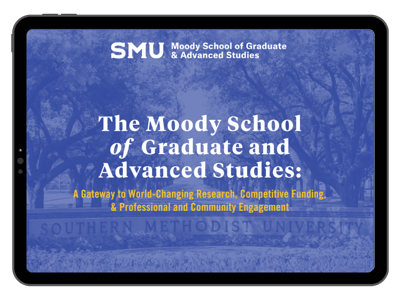
learn more about
How SMU Is Investing in Graduate Students: Get to Know the Moody School of Graduate and Advanced Studies

Request more
Information.
Complete the form to reach out to us for more information
Published On
More articles, recommended articles for you, considering a doctorate in chemistry phd student megan simons shares her experience.
Megan Simons has always had a passion for STEM. After completing her undergraduate with dual...
3 Tips for Graduate Students to Consider When Choosing a Faculty Mentor
You’ve started studying in a great graduate program and are ready to dive into your research, make...
Searching for Answers: Virus-Induced Cancers
Smu graduate student tetiana hutchinson is currently in the biological sciences ph.d. program,..., browse articles by topic, subscribe to.
- U.S. Department of Health & Human Services

- Virtual Tour
- Staff Directory
- En Español
You are here
Grants & funding.
The National Institutes of Health is the largest public funder of biomedical research in the world. In fiscal year 2022, NIH invested most of its $45 billion appropriations in research seeking to enhance life, and to reduce illness and disability. NIH-funded research has led to breakthroughs and new treatments helping people live longer, healthier lives, and building the research foundation that drives discovery.
three-scientists-goggles-test-tube.jpg

Grants Home Page
NIH’s central resource for grants and funding information.
lab-glassware-with-colorful-liquid-square.jpg

Find Funding
NIH offers funding for many types of grants, contracts, and even programs that help repay loans for researchers.
calendar-page-square.jpg

Grant applications and associated documents (e.g., reference letters) are due by 5:00 PM local time of application organization on the specified due date.
submit-key-red-square.jpg

How to Apply
Instructions for submitting a grant application to NIH and other Public Health Service agencies.
female-researcher-in-lab-square.jpg

About Grants
An orientation to NIH funding, grant programs, how the grants process works, and how to apply.
binder-with-papers-on-office-desk-square.jpg

Policy & Compliance
By accepting a grant award, recipients agree to comply with the requirements in the NIH Grants Policy Statement unless the notice of award states otherwise.
blog-key-blue-square.jpg

Grants News/Blog
News, updates, and blog posts on NIH extramural grant policies, processes, events, and resources.
scientist-flipping-through-report-square.jpg

Explore opportunities at NIH for research and development contract funding.
smiling-female-researcher-square.jpg

Loan Repayment
The NIH Loan Repayment Programs repay up to $50,000 annually of a researcher’s qualified educational debt in return for a commitment to engage in NIH mission-relevant research.
Connect with Us
- More Social Media from NIH
An official website of the United States government
Here's how you know
Official websites use .gov A .gov website belongs to an official government organization in the United States.
Secure .gov websites use HTTPS. A lock ( Lock Locked padlock ) or https:// means you've safely connected to the .gov website. Share sensitive information only on official, secure websites.

NSF 101: Graduate and postdoctoral researcher funding opportunities
The U.S. National Science Foundation supports research opportunities and provides stipends for graduate students and postdoctoral fellows and scholars.
There are multiple ways to find these programs, including the funding search on NSF’s website and the NSF Education & Training Application , which is growing its list of opportunities for graduate students and postdoctoral scholars.
To help begin your search, opportunities for graduate students and postdoctoral researchers are listed below. The principal investigator, or PI (a researcher who oversees a project), is often listed on these grants, along with their graduate students or postdoctoral researchers.
Graduate Student
While funding for graduate students is often included in a PI’s research proposal, the following opportunities are also available for early career researchers.
- Doctoral Dissertation Research Improvement Awards/Grants (DDRI/DDRIG) These programs help fund doctoral research in a variety of fields to help provide for items not already available at the academic institution. The funding provided cannot be used for items such as, but not limited to, tuition, stipends, textbooks or journals. The monetary amount listed in each DDRI/ DDRIG section does not include indirect cost associated with the project. The doctoral student should be listed as a co-PI on the grants with their advisor listed as the primary PI.
Archaeology Program- DDRIG : This program supports doctoral laboratory and field research on archaeologically relevant topics, with the goal of increasing anthropologically focused understanding of the past. Awards provide funding up to $25,000 per awardee.
Arctic Science Section DDRIG : The Arctic Sciences Section offers opportunities for DDRI proposals in the following programs: Arctic Social Sciences supports research in any field of social science. Arctic System Science supports projects that address the relationships among physical, chemical, biological, geological, ecological, social, cultural and/or economic processes to advance our understanding of the Arctic system. Arctic Observing Network supports projects focused on scientific and community-based- observations; development of in situ or remote sensors and automated systems; design and optimization of coordinated and scalable observation networks; and management of Arctic Observation Network data, data accessibility and data discovery. Awards provide funding up to $40,000 for a maximum of 3 years.
Biological Anthropology Program- DDRIG : This program supports research on human and non-human primate adaptation, variation and evolution. Awards provide funding up to $25,000 for up to two years.
Cultural Anthropology Program- DDRIG : This program supports research that is focused on cultural anthropology research, including topics such as: Sociocultural drivers of anthropogenic processes (i.e., deforestation, urbanization); resilience and robustness of sociocultural systems; scientific principles underlying altruism, conflict, cooperation, and variations in culture and behaviors; economy, culture migration and globalization; kinship and family norms. Awards provide funding for up to $25,000 for up to two years.
Decision, Risk and Management Science DDRIG : This program supports research on decision, risk and management sciences. This includes research in the areas of judgement and decision making; decision analysis and decision aids, risk analysis; perception and communication; societal and public-policy decision making; and management science and organizational design. Awards are for a maximum of 12 months.
Economics DDRIG :This program provides funding for research focused on improving the understanding of the U.S. and global economy from macroscale to microscale, including all field of economics such as macroeconomics, microeconomics, econometrics, economic theory, behavioral economics and empirical economics.
Human-Environment and Geographical Sciences Program- DDRI : This program supports basic scientific research about the nature, causes and/or consequences of the spatial distribution of human activity and/or environmental processes across a range of scales. The program welcomes proposals for empirically grounded, theoretically engaged, and methodologically sophisticated, generalizable research in all sub-fields of geographical and spatial sciences. Awards may not exceed $20,000 in direct costs.
Linguistics Program- DDRI : This program supports research on human language, including syntax, linguistic semantics and pragmatics, morphology, phonetics, and phonology of individual languages or in general. Awards provide up to $12,000 for a maximum of two years.
Dynamic Language Infrastructure- DDRI : This program supports research on building dynamic language infrastructure, which includes describing languages; digitizing and preserving languages; and developing standards and databases for analyzing languages. Provides funding up to $15,000 for up to two years.
Graduate Research Fellowship Program This fellowship supports full-time master's or doctoral students earning their degree in a research-based program focused on STEM or STEM education. Students are the primary submitter for the fellowship. Fellows will be awarded a $37,000 stipend and $12,000 cost-of-education allowance for three years of the five-year fellowship. For tips on applying, see our previous NSF 101 article on the fellowship program .
Non-Academic Research Internships for Graduate Students (INTERN) Supplemental Funding Opportunity This supplemental funding opportunity is for graduate students funded by active NSF grants. PIs may submit for up to an additional six months of funding to allow students to participate in research internship activities and training opportunities in non-academic settings, such as the following: for-profit industry research; start-up businesses; government agencies and national laboratories; museums, science centers, and other informal learning settings; policy think tanks; and non-profit institutions. Students must have completed at least one academic year of their program. This funding request may not exceed $55,000 per student for each six-month period. A student may only receive this opportunity twice. In addition to the general INTERN opportunity, there are two topic-specific INTERN opportunities:
Non-Academic Research Internships for Graduate Students in Geothermal Energy Supplemental Funding Opportunity : This opportunity is provided by NSF in partnership with the U.S. Department of Energy's Office of Energy Efficiency and Renewable Energy. It maintains the same funding levels and requirements as the general INTERN program; however, funding may only be used for gaining knowledge, skills, training and experience in geothermal energy and technology.
- Research Internships for Graduate Students at Air Force Research Laboratory Supplemental Funding Opportunity : This funding opportunity is for students supported on an active NSF grant to intern at a Air Force Research Laboratory facility. AFRL has several potential technology directorates available for students at locations across the U.S.: Aerospace Systems (Wright-Patterson Air Force Base, Ohio), Information (Rome, New York), Materials and Manufacturing (Wright-Patterson Air Force Base, Ohio), Directed Energy (Kirtland Air Force Base, New Mexico), Munitions (Eglin Air Force Base, Florida), Sensors (Wright-Patterson Air Force Base, Ohio), Space Vehicles (Kirtland Air Force Base, New Mexico), 711th Human Performance Wing Training (Wright-Patterson Air Force Base, Ohio).
Mathematical Sciences Graduate Internship This summer internship is for doctoral students in mathematical sciences through a partnership between NSF and Oak Ridge Institute for Science and E ducation. It provides students who are interested in academic and non-academic careers with the opportunity to learn how advanced mathematics and statistical techniques can be applied to real-world problems. Participants in the internship will receive a stipend of $1,200 per week during the 10-week internship. In addition, there is travel reimbursement for up to $2,000 for those who live more than 50 miles away from their hosting site.
NSF Research Traineeship Program Graduate students can apply for this traineeship through their institutions, if available. These topics can range across the scientific spectrum. Current projects can be found by state .
Research Experiences for Graduate Students Supplemental Funding These awards provide additional funding for graduate students with mentors who have an active NSF grant. Currently funding is available through the following programs:
Cultural Anthropology provides up to $6,000 per student for research activities.
Human Environment and Geographical Sciences at Minority Serving Institutions and Community Colleges provides up to $7,000 per student for research activities.
Postdoctoral Scholars
Astronomy and Astrophysics Postdoctoral Fellowship This fellowship supports research investigating a field within astronomy or astrophysics for up to three years. The stipend is $75,000, with a fellowship allowance (i.e., expenses for conducting and publishing research, fringe benefits) of $35,000.
Atmospheric and Geospace Sciences Postdoctoral Fellowship This fellowship supports postdoctoral fellows in atmospheric or geospace sciences. Atmospheric science includes topics such as atmospheric chemistry; climate and large-scale dynamics; paleoclimate climate; and physical and dynamic meteorology. Geospace science focuses on aeronomy, magnetospheric physics and solar terrestrial research. This fellowship provides up to 24 months of support. The stipend is $70,000 per year, with a fellowship allowance of $30,000.
Earth Science Postdoctoral Fellowship This program supports the study of structure, composition and evolution, the life it supports and the processes that govern the formation and behavior of Earth’s materials. Researchers are supported for up to two years at the institution of their choice, including institutions abroad. The stipend is $65,000 per year, with a fellowship allowance of $25,000 per year.
Mathematical and Physical Sciences Ascending Postdoctoral Research Fellowships
This program supports postdoctoral fellows performing impactful research while broadening the participation of members of groups that are historically excluded and currently underrepresented in mathematical and physical sciences. This fellowship can last between one and three years. The stipend is up to $70,000 per year, with a fellowship allowance of $30,000 per year.
Mathematical Sciences Postdoctoral Research Fellowships This fellowship has two options:
- The Research Fellowship provides full-time support for any 18 months within a three-year academic period.
- The Research Instructorship provides a combination of full-time and half-time support over a period of three academic years, which allows the fellow to gain teaching experience. Both options receive up to $190,000 over the fellowship period. The full-time stipend is $5,833 per month and the part-time stipend is $2,917 per month. In addition, the fellow will receive $50,000 in two lump sums ($30,000 in the first year and $20,000 in the second year) for fellowship expenses.
Ocean Sciences Postdoctoral Research Fellowships This fellowship supports research in topic areas such as: biological oceanography, chemical oceanography, physical oceanography, marine geology and geophysics, ocean science and technology. This two-year fellowship with a stipend of $67,800 for the first year and $70,000 for the second year, with a fellowship allowance of $15,000 per year.
Office of Polar Programs Postdoctoral Research Fellowships This fellowship supports postdoctoral research in any field of Arctic or Antarctic science. This two-years fellowship, with a stipend of $67,800 for the first year and $70,000 for the second year, with fellowship expenses of $15,000 per year.
Postdoctoral Research Fellowship in Biology The Directorate of Biology offers a fellowship for postdoctoral researchers in one of three areas:
- Broadening Participation of Groups Underrepresented in Biology. This area requires a research and training plan that is within the scope of the Directorate for Biology and that enhances diversity within the field.
- Integrative Research Investigating the Rules of Life Governing Interaction between Genomes, Environment and Phenotypes. This area aims to understand higher-order structures and functions of biological systems. Research should use a combination of computational, observational, experimental or conceptual approaches.
- Plant Genome Postdoctoral Research Fellowships. This area has a broad scope and supports postdoctoral training and research at the frontier of plant biology and of broad societal impact. Highly competitive proposals will describe interdisciplinary training and research on a genome wide scale. The fellowships are for 36 months and have a stipend of $60,000 per year, with a research and training allowance of $20,000 per year.
SBE Postdoctoral Research Fellowships This fellowship supports postdoctoral research in the social, behavioral and economic sciences and/or activities that broaden the participation of underrepresented groups in these fields. Funding is up to two years and has two tracks available:
- Fundamental Research in the SBE Sciences. This track supports research focused on human behavior, interaction, social and economic systems.
- Broadening Participation in SBE Sciences. This track aims to increase the diversity of post-doctoral researchers in the social, behavioral and economic sciences. In addition to the research proposal, these applications should also answer the question: “How will this fellowship help broaden or inform efforts to broaden the participation of underrepresented groups in the United States?” The stipend for this program is $65,000 per year (paid in quarterly installments) and the research and training allowance is $15,000 per year.
SBIR Innovative Postdoctoral Entrepreneurial Research Fellowship This fellowship supports postdoctoral researchers at start-up companies through the Small Business Innovation Research program. By recruiting, training, mentoring, matching and funding these early-career scientists, this fellowship addresses the need of doctoral-level expertise at small, high-tech businesses. The base stipend is $78,000 per year with optional individual health and life insurance, relocation assistance (company dependent), professional conference travel allowance, and professional development funds.
Science, Technology, Engineering and Mathematics Education Individual Postdoctoral Research Fellowship This fellowship is for postdoctoral researchers to enhance their research knowledge, skills, and practices of STEM education research. If the fellowship is granted, the fellow is expected to remain affiliated with the host organization and PI sponsoring them. The fellowship can last up to two years with an annual stipend of $70,000, with fellowship expenses of $15,000.
Multilevel
CyberCorps® Scholarship for Service This program is for students earning their associates, bachelor's, master's or doctoral degree in cybersecurity. A stipulation of the program is that the recipients must work after graduation in a cybersecurity mission of the federal, state, local or tribal government for an equal amount of time as the scholarship's duration. It will provide full tuition and fees plus a stipend of $27,000 per academic year for undergraduates and a stipend of $37,000 per academic year for graduate students, in addition to a professional allowance of $6,000 for all levels.
NSF-NIST Interaction in Basic and Applied Scientific Research This supplemental funding request is for NSF-supported researchers to collaborate with researchers at a National Institute of Standards and Technology facility. It can be used for travel expenses and per diem associated with on-site work at NIST. It is available for NSF-supported PIs, co-PIs, postdoctoral scholars, graduate and undergraduate students and other personnel associated with the research. PIs should contact their NSF program director for their award before applying.
This extensive list shows the ways in which NSF helps train the next generation of STEM researchers. If you are interested in learning more about any of these programs, reach out to contacts listed on the award webpages.
If you are interested in awards for high school students, undergraduates and post-baccalaureate scholars, check out our previous NSF101 for more information!
About the Author
Related stories.

Dive into research on world's ocean
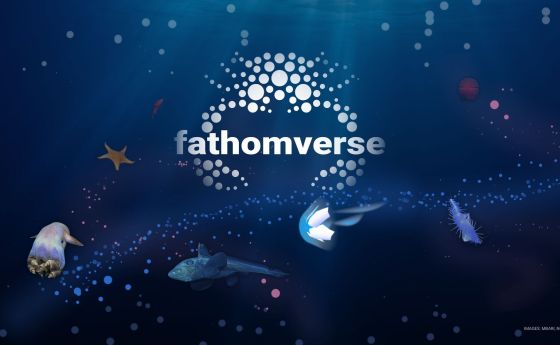
Mobile video game submerges users into ocean depths

Bees, birds, butterflies, bats: NSF helping keep pollinators, bioeconomy healthy
PhD Student Funding Overview

At Yale, you can earn your doctorate at our expense.
Our funding packages for Yale PhD students are among the most generous in the world. Every PhD student receives a fellowship for the full cost of tuition, a stipend for living expenses, and paid health coverage, though the details of your funding package will differ depending on your academic program. On average, doctoral students receive more than $500,000 in tuition fellowships, stipends, and health premium benefits over the course of their enrollment. Full PhD funding normally extends for a minimum of five years, unless your doctoral program is of shorter duration, e.g., Investigative Medicine, Law, Nursing, and Public Health.
The main categories of funding available to PhD students are detailed below. Our Programs & Policies handbook contains additional information about funding and fellowship opportunities available at the Graduate School, along with applicable policies.
If you have questions about your funding, you can ask your program registrar or DGS, Graduate Financial Aid, or Associate Dean Robert Harper-Mangels.
Types of Funding for PhD Students
University Fellowships (UFs) are provided through the Graduate School and do not require teaching in Yale's Teaching Fellow Program. UFs are often used during the initial year(s) of your doctoral program to cover your stipend and tuition, when you are engaged in coursework and identifying an adviser.
For official policies governing University Fellowships, including information on deferring a UF, please see our Programs & Policies Bulletin .
In subsequent years and in most programs, your stipend will be funded by a teaching fellowship or a research assistantship.
Teaching Fellowships (TFs) are contingent on teaching Yale's Teaching Fellow Program (TFP). While you are on a TF, a portion of your stipend is compensation for teaching. The rest of your stipend will come from other sources, depending on your department or program. See the Teaching Fellow Funding page for more information.
The teaching portion of your stipend is subject to federal tax withholding, so you will notice a difference in your paycheck in teaching versus non-teaching semesters.
In lieu of teaching in the Teaching Fellow Program, PhD students in the humanities and social sciences may choose to undertake one of the available Professional Development Opportunities . These positions allow you to gain professional experience at a library, museum, or other office on campus relevant to your studies.
If you are in the natural sciences, your funding will likely come from training grants and faculty research grants at some point during your enrollment. In most programs, you may only join a research group that has active grant funding. Please consult with your DGS, if you have questions about this aspect of your funding package.
We strongly encourage you to compete for external fellowships. Winning an external award in a national competition, whether sponsored by a public or private agency, is a significant honor. External fellowships may be subject to our Combined Award policy. Please be sure to review our External Fellowships & Awards page to understand how external awards interact with university funding.
An external fellowship may also offer you added flexibility in your program.
- If you are a student in the natural sciences, an external fellowship may allow you to pursue a project or idea that is otherwise not eligible for financial support through your adviser’s research funding.
- If you are a student in the humanities or social sciences, an external fellowship might allow you to defer a University Fellowship (UF) to a subsequent term or year.
You can search for external fellowships through the Yale Student Grants Database , other university search engines (e.g., UCLA ), and commercial sites .
You must notify the Graduate School of any external awards you receive.
- Send a copy of your award letter to the Financial Aid Office at [email protected] .
- If your award is subject to the Combined Award policy, then you will receive a combined award letter via email when your award has been processed, outlining your updated funding package.
For any questions and concerns regarding your combined award letter, please contact the Graduate School Financial Aid Office via email at [email protected]. Associate Dean Robert Harper-Mangels can also advise regarding our Combined Award policy.
Additional GSAS Financial Support
Phd stipends.
An overview of information relevant to the PhD stipend.
Health Award
The Graduate School provides Yale Health Basic Coverage at no cost to all students (Master's and PhD) who are enrolled at least half-time in degree-seeking programs. In addition, all PhD students registered at least half-time receive a Health Fellowship Award that covers the cost of Yale Health Hospitalization/Specialty Care Coverage.
Featured Resource
Family Support Subsidy for Parenting PhD Students
PhD students who are registered full-time in any year of study are eligible for the family support subsidy to assist with child-related expenses.
Dean's Emergency Fund
The Dean’s Emergency Fund enables terminal master’s and PhD students in the Graduate School of Arts and Sciences to continue making academic progress despite unanticipated, extreme financial hardships that cannot be resolved through fellowships, loans, or personal resources. The maximum award for eligible requests is $2,000.
Conference Travel Fellowship (CTF)
https://gsa.yale.edu/ctf
By partnering with the MacMillan Center and the Graduate School of Arts and Sciences, graduate students with representatives in the Graduate Student Assembly are eligible for annual conference travel funding of up to $800.
PhD Student Travel Health Fellowship
If you are a PhD student traveling for dissertation research, the Graduate School provides a Travel Health Fellowship to cover the cost of required immunizations and prescription drugs at Yale Health.
Graduate Financial Aid Office
Office Address
- [email protected]
- 203-432-2739
- 246 Church Street, 2nd Floor
- PhD Degree Funding
Harvard guarantees full financial support to PhD students—including tuition, health fees, and basic living expenses—for a minimum of five years.
- Dissertation
- Fellowships
- Maximizing Your Degree
- Before You Arrive
- First Weeks at Harvard
- Harvard Speak
- Pre-Arrival Resources for New International Students
- Alumni Council
- Student Engagement
- Applying to Degree Programs
- Applying to the Visiting Students Program
- Admissions Policies
- Cost of Attendance
- Express Interest
- Campus Safety
- Commencement
- Diversity & Inclusion Fellows
- Student Affinity Groups
- Recruitment and Outreach
- Find Your Financial Aid Officer
- Master's Degree Funding
- Federal Student Aid
- Other Sources of Support
- Financial Wellness
- Consumer Information
- Life Sciences
- Policies (Student Handbook)
- Student Center
- Title IX and Gender Equity
Harvard's financial support package is typically for the first four years of study and the completion year, using a tiered tuition structure that reduces tuition over time as students progress through their degree programs. This multiyear funding package includes a combination of tuition grants, stipends, traineeships, teaching fellowships, research assistantships, and other academic appointments. In addition, Harvard Griffin GSAS students are particularly successful in securing grants, fellowships , and other sources of external funding as part of their professional development.
The standard funding package includes:
- grant toward tuition and fees—paid in full for years 1 through 4, plus the dissertation completion year, with a partially subsidized dental plan option available
- living expense stipend during years 1 and 2
- a combination of stipend, teaching fellowships, and/or research assistantships during years 3 and 4
- if noted in your Notice of Financial Support, summer research funding following the first four academic years from Harvard Griffin GSAS or faculty grants
- stipend and/or research support during the completion year.
In some programs, the timing and structure of living expense support may vary from this pattern. For example, students in the sciences typically receive full funding until they complete their degrees.
Financial Aid
Share this page, explore events.
- How to Apply for PhD Funding – Advice, Tips and FAQs
How to Apply for PhD Funding – Advice, Tips & FAQs
Written by Mark Bennett
You've found a great project at the perfect university and you're all set to get going with your research. There's just one question left: how are you actually going to fund your PhD?
The first step is to get to know the different types of PhD funding . But what about actually applying for them? How do you decide where to start? How do you stay organised? And, ultimately, how do you convince someone to help pay for your PhD?
This guide is here to help with those questions. We've distilled the most important PhD funding advice into six simple tips, followed by some FAQs to cover common questions.
How to apply for PhD funding – the basics
First things first, how do PhD funding applications actually work? It obviously depends on the type of funding you apply for, but here are some general pointers to get you started on applying for a PhD scholarship, studentship or loan.
Applying for PhD funding vs applying for a PhD
If your PhD is advertised as a funded project then you won't need to make a separate application for funding: you simply apply for the PhD opportunity and get the stipend or studentship that comes with it. This is common in STEM (Science, Technology, Engineering and Mathematics) subjects. If that's you, you don't really need the advice on this page – you can just get started finding a funded PhD !
If you're proposing your own PhD topic then you will need to apply for funding separately. This is common in Arts, Humanities and Social Science subjects, though some STEM projects are also advertised for self-funded students . If you're one of them then the information here is designed to help you.
Where to apply
A lot of PhD funding is already allocated to universities, even if the money itself comes from an external source. This is the case for UK Research Council studentships as well as many scholarships from large charities like the Leverhulme Trust or the Wolfson Foundation.
You normally apply for this kind of funding after the university has accepted your PhD application . Sometimes it's a completely separate process, or you may automatically be entered into consideration for a PhD scholarship from your university.
Other funding bodies like smaller charities or learned societies will usually accept applications directly from students. They may also want confirmation that you've been accepted for a PhD before they'll consider you. If you're not sure how to apply for a PhD scholarship, it's best to reach out to the funding body directly, as the process will differ between organisations.
Applications for the PhD loan go directly to student finance. You'll need to say where you plan to do your PhD, but you don't need to have finished applying for it yet.
Deadlines for PhD funding are usually set quite far in advance. You may need to begin your funding application during the winter or early spring of the academic year before your degree starts. This provides time for funders to assess applications and select candidates (most PhD scholarships and studentships are awarded competitively).
Deadlines for student loans are more relaxed as only your basic eligibility needs to be checked. For example, you can actually apply for a UK PhD loan at any point up until three months before the end of your degree.
What you'll need
Application requirements for PhD funding are similar to those for a PhD.
You'll normally need to provide details of your existing or pending qualifications, a proposal for the project you plan to research, and some form of personal statement that explains your broader goals and establishes your 'fit' with this scholarship or studentship. Some funders may also ask to see an appropriate academic CV and references .
Bear in mind that the things a funder wants to see may be slightly different to the things a university wants to see. For example, they may care less about the academic detail and methodology for your project and more about how its outcomes support their own objectives.
PhD funding bodies
There are many organisations including charities and trusts that fund PhDs in the UK, but the seven Research Councils run by UK Research and Innovation (UKRI) are by far the biggest contributors to doctoral research. Together, they invest £380 million per year in PhD studentships.
How to apply for PhD funding – tips and tricks
Applying for PhD funding isn't quite the same as applying for a PhD . You'll need to plan for multiple options and outcomes and organise your applications accordingly. You may also need to think slightly differently about how you present and talk about your PhD plans.
Here are some tips to increase your chances of success:
Tip 1 – Work out how much funding you definitely need
The first step in applying for funding should be to work out the rough cost of your PhD . Fees will be similar for most PhDs in the UK, but living costs and other expenses will depend on your subject and circumstances. It's a good idea to get a rough estimate for yours.
Now, subtract from that any funding you may be able to access automatically. This could include things like alumni discounts from your university or student finance like the UK PhD loan.
Once you've done this, you'll know how much funding is essential to make your PhD viable and you can prioritise your options accordingly (we'll get to that soon).
The reality is that applications for full studentships (like those from the AHRC , ESRC and other UK Research Councils ) are very competitive. They should still be your Plan A, but that doesn't mean you can't also be working on a Plan B.
Tip 2 – Don't put all your eggs in one basket
This follows from the above, but it's worth picking out (yes, we care about you too, skim readers).
You want a full PhD studentship. Having one is clearly better than borrowing money, using your own savings or working part-time to fund a PhD (and it's an awful lot better than having to do all three).
But you can't just assume you'll get a particular studentship. So don't.
At the very least, have a couple of alternatives in mind (i.e. funding opportunities from your university as well as a UKRI studentship ). You should also be thinking now about what you'll do if you don't get a particular funding option. Can you begin your project as a wholly or partially self-funded student? What other grants might you apply for in that case, and when?
This brings us to. . .
Tip 3 – Be really organised
Some of the most boring and obvious advice for a PhD funding search also happens to be some of the most effective.
First of all, make a list of the different funding options you might apply for. Include details of the amounts they offer, their specific eligibility criteria and, most importantly, their deadlines.
Next, work backwards from those deadlines and plan your application process. It might be a good idea to split this into phases, starting with the earliest deadlines for the best funding and moving on to less ideal (but potentially viable) options that leave you more time prepare.
Let's say you're looking to fund a Social Sciences PhD. You know that the deadline for Economic and Social Research Council funding at your university is in January and you focus on getting everying ready for that application, before Christmas. This is phase one.
Meanwhile, you're also making a list of alternative sources of full funding, from your university and some independent trusts and charities . If your ESRC application isn't successful, you're instantly ready to pick yourself up and go to phase two.
Finally, you've read up on the UK PhD loan system and determined that this is a viable (though not ideal) option, if all else fails. There's no real deadline for this and applications don't generally open until June. So, if it comes to it, that's phase three.
It's a lot of work, but it's also good training in organisational and project management skills – fairly handy on a PhD.
Tip 4 – Don't beg and don't spam
This advice should be self-explanatory and, given that you've bothered to read this far, you shouldn't need it. Still though, you might be surprised to learn just how many low quality applications some funders receive.
As a general rule, funders will be more interested in your research than they are in your personal backstory. Or, to put it another way, the fact that you really need funding isn't enough to get it (everyone else needs funding too and scholarships are almost never first-come-first-served).
Similarly, copying and pasting the same email to multiple funders may feel like it saves time, but it probably just wastes it. It's easy to spot a copied email and, in any case, you won't have given yourself a chance to explain why your research fits each funder's objectives. That brings us to the next tip.
Tip 5 – Think like a funder
Applying for a PhD means convincing someone that your research is worth doing. Applying for funding means convincing someone that it's worth paying for.
And, sadly, no funder exists just to help any student get any PhD in any subject.
So, a key piece of advice for a successful PhD funding application is to try and get inside the head of potential funders. What are their objectives? Why do they actually fund PhD research? What do they hope their funding will achieve?
Universities will want to maintain or raise their profile for research in certain areas. Businesses will hope to benefit commercially and / or reputationally from the research they fund. Charities will pursue a range of objectives, from combatting disease or addressing cultural issues to preserving local heritage or widening participation in education.
Whatever your funder's goals, you need to be really clear why and how you and your PhD are going to help achieve them. The best place for this is normally a personal statement or covering letter (if your funding application asks for one) but you may also need to think ahead to potential PhD interview questions , if a representative from your funding body will be present.
Tip 6 – Get help from your supervisor, if you can
Chances are that you've already been matched with a supervisor by now (particularly if you've already been accepted for your PhD). If not, you may have a supervisor in mind and have begun corresponding with them .
Either way, a prospective supervisor may be able to help more than you think. This isn't just because they're experts in your field, either; academics also have a lot of experience applying for research funding.
Here are a few of the ways they may be able to help:
- Highlighting funding you aren't aware of – Your supervisor will be aware of specialist funders in your subject area and they may also have advance knowledge of upcoming funding opportunities
- Helping you emphasise the right aspects of your project – Your supervisor will be used to thinking about research from a funder's point of view; they'll be able to help you decide what to include (and leave out) when pitching your research for funding
- Acting as a referee – Your supervisor will be uniquely positioned to vouch for the potential value and impact of your project
- Providing perspective – Not winning funding can be disheartening, but it doesn't mean your PhD is a failure; your supervisor will be able to help you pick yourself back up and move on to the next option
How much support you can expect from a supervisor will depend on your circumstances (and theirs) but you don't necessarily have to apply for PhD funding entirely on your own.
PhD funding FAQs
Here are the answers to a few common questions about PhD funding:
Can I apply for multiple funding options at the same time?
Yes. Technically you put in as many PhD studentship or scholarship applications as you like. Just bear in mind that good funding applications take time. It's better to be organised than to over-stretch yourself.
Also, some funding options can't be combined: for example, you can't have a PhD loan if you've also been awarded funding from UKRI .
Is there a limit to how much PhD funding I can get?
Some funders will only provide full studentships to PhD students who don't already have another substantial source of support.
There's no official limit on the number of smaller grants you can combine from universities, charities and trusts (and no one to enforce one) but, again, funders may wish to focus on students who need their support the most.
How much is PhD funding worth?
Broadly speaking, there are two types of PhD funding:
- Full studentships provide a payment for your university fees and a stipend or bursary to contribute towards your living costs
- Partial awards either cover your fees or contribute towards living costs
Some full studentships also provide additional money for travel and research expenses such as materials and fieldwork.
In any case, the value of your PhD funding will depend on the cost associated with your PhD. As a good benchmark, a full UKRI studentship currently provides a little under £20,000 per year for fees and living costs
What can I use PhD funding to pay for?
It depends what the funding is allocated for.
Most PhD stipends or bursaries are paid directly to students for living costs. Funders won't check exactly what you spend this money on, but it's a good idea to focus on accommodation, groceries and other essentials.
Some additional funding may be provided for travel or conference expenses, in which case you'll probably need to keep the relevant reciepts.
Money paid for fees will usually go directly to your university.
When should I start looking for PhD funding?
It's a good idea to begin thinking about funding as soon as you start to seriously consider a PhD. That will give you enough time to put together the best possible application and consider alternative options if you aren't initially successful.
Can funded students also work during a PhD?
You won't normally be allowed to work full-time if you also have a full studentship, but you may be able to work part time (this is the case for UKRI PhD funding).
Is PhD funding tax free?
Government funding, such as Research Council studentships, is usually tax-free. The same is usually true of other grants and scholarships that are provided solely to help support PhD study. However, some PhD funding may be taxable if it is provided in return for services such as teaching or other work at your university.
PhD loans are always tax free, but they may affect your entitlement to some benefits, including how much Universal Credit you can claim .
Does PhD funding need to be repaid?
Studentships and scholarships don't need to be repaid after you complete your PhD. Student loans do, but their repayments are linked to earnings.
Can I get funding if I don't have a 1st or 2.1?
Having a good degree result from your Bachelors (or Masters ) will help in your funding application, but it isn't the only thing funders will consider. A lower class degree may be compensated for by other factors such as relevant experience and the wider potential of your PhD project.
What happens if I don't get PhD funding?
You may still be able to begin your PhD without funding, but this will depend on your circumstances.
Some students begin by self-funding (using savings, part-time work and / or PhD student loans) in the hope of winning a full studentship during their PhD. This approach can be successful, but there's no guarantee you'll win funding later if you haven't done so in advance. So be honest about whether you can see the full doctorate through as a self-funding student.
Self-funding can also be difficult if you have to pay additional bench fees (for consumables and materials) or if the working hours for your PhD aren't flexible enough to fit around part-time work.
Ready to find a PhD?
You can find funded PhD programmes on our website.
Our postgrad newsletter shares courses, funding news, stories and advice
You may also like....

We've answered some of the most frequently asked questions about PhDs, covering course types, applications, funding and the benefits of further study.

Not sure how to fund your PhD? This guide answers some of the most common questions about PhD funding in the UK.

The seven UK Research Councils provide government studentships for PhD research in different subject areas. Our simple guide explains how this funding works, what you can get and how to apply successfully.

You may be able to get a PhD loan of up to £27,892 for a UK doctorate. Our guide explains eligibility, applications and repayments.

Our guide explains the best ways to fund international PhD study in the UK, with information on all the main scholarships available to you.

A range of scholarships may be available to help you fund a PhD. Our guide explains the different types of award with tips for making a successful funding application.
FindAPhD. Copyright 2005-2024 All rights reserved.
Unknown ( change )
Have you got time to answer some quick questions about PhD study?
Select your nearest city
You haven’t completed your profile yet. To get the most out of FindAPhD, finish your profile and receive these benefits:
- Monthly chance to win one of ten £10 Amazon vouchers ; winners will be notified every month.*
- The latest PhD projects delivered straight to your inbox
- Access to our £6,000 scholarship competition
- Weekly newsletter with funding opportunities, research proposal tips and much more
- Early access to our physical and virtual postgraduate study fairs
Or begin browsing FindAPhD.com
or begin browsing FindAPhD.com
*Offer only available for the duration of your active subscription, and subject to change. You MUST claim your prize within 72 hours, if not we will redraw.

Do you want hassle-free information and advice?
Create your FindAPhD account and sign up to our newsletter:
- Find out about funding opportunities and application tips
- Receive weekly advice, student stories and the latest PhD news
- Hear about our upcoming study fairs
- Save your favourite projects, track enquiries and get personalised subject updates

Create your account
Looking to list your PhD opportunities? Log in here .

Graduate Research Fellowship Program
Individuals can access the application module here
The National Science Foundation (NSF) Graduate Research Fellowship Program (GRFP) recognizes and supports outstanding graduate students who are pursuing research-based master’s and doctoral degrees in science, technology, engineering, and mathematics (STEM) and STEM education fields within NSF’s mission . The GRFP provides up to three years of support for the graduate education of individuals who have demonstrated their potential for significant achievements in science and engineering research. The GRFP supports over 100 subfields.
The GRFP encourages applications from underrepresented groups, including women, minorities, persons with disabilities, and veterans, in order to broaden and diversify those participating in science and engineering.
Cookie Notice
This website uses cookies, including third party ones, to allow for analysis of how people use our website in order to improve your experience and our services. By continuing to use our website, you agree to the use of such cookies.
Fellowships & Grants
Since 1888, AAUW has been one of the largest funders of women’s graduate education, investing in women who go on to change the world.
Apply for AAUW’s Fellowships and Grants Today!
Follow in the footsteps of award-winning authors, scientists, scholars, changemakers, and community leaders. AAUW is providing more than $6 million in funding to 285 fellows and grantees in the 2023-24 award year. These exceptional recipients will pursue academic work and lead innovative community projects to empower women and girls. Will you be next?
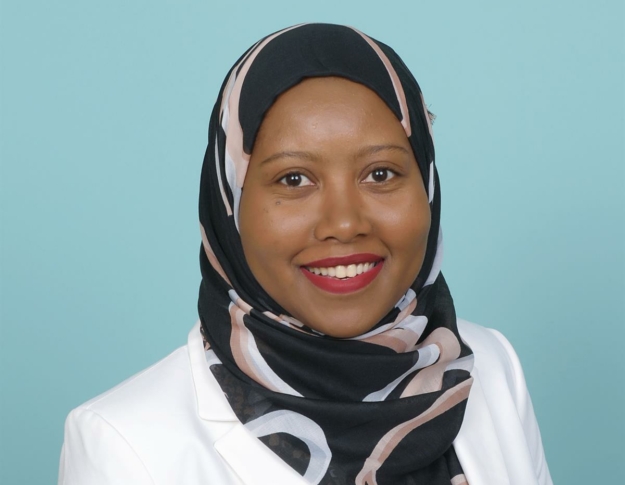
Current Opportunities
Pursuing academic work or leading community projects? See if there is an AAUW fellowship or grant that matches your academic or professional goals! To confirm your eligibility for a program, review the application instructions carefully.
Welcome, Class of 2022-23!
Dr. Nabiha Saklayen, 2013-14 International Fellow and CEO and Co-Founder of Cellino, welcomes the incoming class of AAUW fellows and grantees.
Meet a Grantee
As an advocate for social justice, Chasity J. Deal is currently researching the correlation between inadequate housing and inequitable health care within our underrepresented and underserved populations. Her work also focuses on poverty and health, and how this correlation affects entire populations. She intends to pursue her doctoral degree upon earning her master’s. Her goal is to start a nonprofit research organization devoted to eradicating food and water insecurity in the United States.
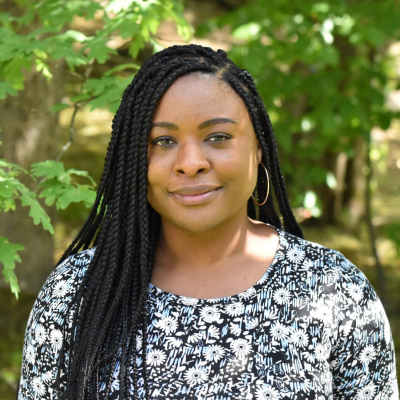
3 Questions for Rachael Rollins
"We need to realize that we are just as qualified to do things as men are."
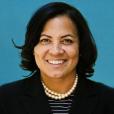
Women of Distinction Awards
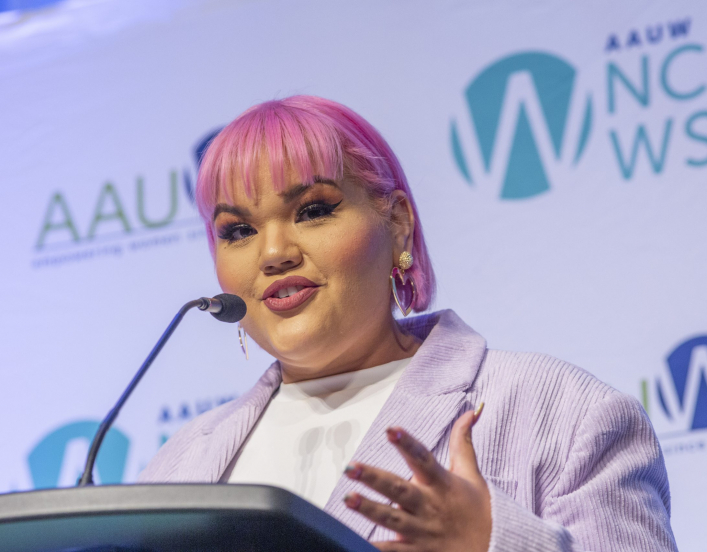
Subscribe to our newsletter
You must enable JavaScript to sign up.
- Communications
- Computer Science
- Criminal Justice
- Environmental Management
- Forensic Psychology
- Healthcare Admin
- Human Resources
- Project Management
- Social work
- Special Education
- Sports Management
- Supply Chain Management
- Adult Education
- Business Intelligence
- Early Childhood Education
- Educational Technology
- Homeland Security
- Information Systems Security
- Information Technology
- International Business
- Management Information Systems
- Nonprofit Management
- School Counseling
- Academic Publishing Guide
- Building a Graduate School Resume or CV
- Choosing Between a Thesis or Non-thesis Master's Degree
- Expert Guide to Studying Abroad
- FAQ: Online Master's Degrees
- Grad School Guide Book
- Graduate School for Students with Disabilities
- Green Graduate Degrees
- How to Be a Successful Grad Student
- How to Choose the Right Graduate Program
- How to Get a Master's Degree in an Unrelated Field
- How to Transfer College Credits in Grad School
- How to Write a Winning Personal Statement
- Inside Graduate Admissions
- Ivy League Grad Schools
- Master's Degrees for Veterans
- Master's Degree for Women
- Mental Health in Grad School
- Progressive LGBTQ Graduate Degrees
- Should You Apply for a Graduate School Assistantship?
- Surviving Grad School with a Family
- Taking a Gap Year Before Grad School
- Women in STEM Graduate Resources
- Writing a Successful Statement of Purpose
- Alternative Ways to Pay for School
- The Best Part-Time Jobs During Grad School
- Company Funded Graduate School
- FAFSA For Grad Students
- Financial Aid Resources
- Graduate Student Loans
- Paying for Your Master's Degree
- Paying Off Student Loans
- Paying for Your PhD
- Fellowship Opportunities
- LGBTQ Scholarships
- MBA Scholarships
- Scholarship Resources
- Scholarships for Veterans
- Scholarships for Women
- Crushing the GRE Guidebook
- GMAT Guidebook
- Guide to the LSAT
- MCAT Prep for Medical School
- Study Guide: Exam Resources
- TOEFL Prep for Non-Native English Speakers
- Financial Aid PhD Scholarships and Financial Aid
PAYING FOR YOUR PHD Expert Tips, Scholarships Opportunities and Resources for Financing an Advanced Degree
The average yearly tuition for a PhD program is slightly above $16,000, which means students will invest about $80,000 in tuition fees alone for a five-year program. Add in fees, cost-of-living, travel expenses and the figure can easily surpass six figures. Yet, it is possible to fund a PhD program without breaking the bank and going into debt.
Featured Online Schools
- PhD Cost Breakdown
- PhD Financial Aid Options
- Expert Spotlight: Lawrence Burns, PhD
- Earning Outlook for Phd Students
- Most Lucrative PhD Careers
- Expert Spotlight: Darren Pierre, PhD
- PhD: By The Numbers
- Additional Financial Aid Resources
PHD COST BREAKDOWN
The value of a college education should not be understated, but neither should its actual cost. Earning a doctoral degree can be an expensive proposition. According to the latest data from the National Center for Education Statistics, the average tuition and fees for a graduate program of study was $16,435 in 2012-2013. The table below outlines the 2012-2013 graduate tuition and fees by academic institution.
- All Institutions $16,435
- Public $10,408
- Private Non-Profit $23,698
- Private For-Profit $14,418
Source: National Center for Education Statistics
A rough calculation of the number of years it takes to complete a doctoral program, multiplied by the average 2012-2013 tuition and fees from the NCES, reveals the following total cost figures by academic field of study.
| Academic Field | Median Years to Completion | Tuition | |
|---|---|---|---|
| 11.7 | $121,774 | ||
| 9.2 | $95,754 | ||
| 7.7 | $80,142 | ||
| 6.9 | $71,815 | ||
| 6.6 | $68,693 | ||
| 6.5 | $67,652 |
A five- to six-figure education is something to take seriously as there are debt implications after leaving finishing a PhD program. Graduating doctoral students in 2013 left school with an average debt of just over $15,000, according to the National Science Foundation. By field, students in the Social Sciences, Education and Humanities graduate with the highest levels of student debt:
- Education: $26,566
- Social Sciences: $26,222
- Humanities: $21,485
Conversely, the science and technology fields graduate students with the lowest debt figures:
- Physical Sciences: $6,342
- Engineering: $7,031
- Life Sciences: $11,905
- Physical Sciences 78.2%
- Engineering 75.1%
- Life Sciences 67.2%
- Humanities 48.4%
- Social Sciences 46.5%
- Education 44.1%
Source: National Science Foundation, Survey of Earned Doctorates, 2013
While these figures may seem alarming, a deeper dive into survey data from the National Science Foundation actually paints a more positive picture. Overall, more than 62 percent of all doctoral recipients graduate from school without a single dollar of debt.
Prospective students can use the table below to get a better sense of the percentage of students who take on debt at incremental levels in each field of academic study. A majority of students graduate with $10,000 or less in debt after finishing their doctoral degree.
PhD Cost Factors
The total cost of earning a doctoral degree is variable because of the sheer number of different factors involved. Tuition is not the only cost to consider when thinking about applying to a PhD program.
Typically, students pay full tuition rates during their first three years of doctoral study and receive reduced tuition rates for the remainder of the program. However, the actual cost of tuition does vary and may be dependent on the student’s actual degree program.
Graduate students pay a range of fees, with the most common including:
- Health Services (access to health facilities on campus)
- Health Insurance (personal health insurance)
- Student Activity (subsidizes athletics and other clubs)
- Student Recreation (access to recreational facilities on campus)
Some programs estimate students should be prepared to pay between $3,000 and $4,500 per academic year in student fees and health insurance costs.
Students with a master’s degree or coursework in a similar graduate program may be able to transfer credits into their doctoral program. That can lower the total number of credits required to graduate, which can lower the total cost of the degree. However, some institutions do limit the amount of tuition credits that can be applied for graduate work done in a related field at other institutions.
Whether or not the student has an assistantship does not affect the cost of textbooks and other academic materials. Books are a revolving charge, one a student should plan upon each semester or quarter.
Housing, utilities and food are considered indirect expenses students incur during their education. PhD students should plan on anywhere from $12,000 to $25,000 and up for living expenses each year. Again, this figure is highly variable based on the location of the university and the cost-of-living in that area.
Owning a car means additional budgeting for insurance, car payments and gas. Additionally, students may need to travel for conferences and research. Without funding from a graduate student association or grant program, the student will have to cover these costs individually.
PhD students with children may have to account for childcare costs. Purchasing a new computer and other supplies may also be required. This type of budgeting will vary from individual to individual, program to program.
Most PhD programs allow students to progress at their own pace, requiring them to complete and defend their dissertation within a certain time period (e.g. six years). However, the time it takes to complete a dissertation depends on the student, area of study, research, etc. This can impact cost of attending a doctoral program.
Example Cost of Attendance
A student’s budget should include the total cost of attendance—that is both direct (tuition and fees) and indirect costs (e.g. housing). This budget is the starting point for determining the student’s financial need, how much financial aid they require, and if they can afford to attend a doctoral program. Below is a sample five-year total cost of attendance chart based on an in-state tuition program, with a budget that assumes fixed costs for fees and indirect costs, such as housing. It also does not take into account assistantships and tuition waivers for assistants.
Based on a figure that’s slightly below the 2012-2013 average graduate tuition cost, the total cost of attendance can still produce sticker shock. An average student in a program that charges $12,000 per year in tuition could have to pay between $30,000 and $45,000 year in total costs.
| Costs | Year 1 | Year 2 | Year 3 | Year 4 | Year 5 | Total Cost of Attendance | |
|---|---|---|---|---|---|---|---|
| $12,654 | $12,654 | $12,654 | $3,658 | $3,658 | $45,278 | ||
| $279 | $279 | $279 | $279 | $279 | $1,395 | ||
| $2,390 | $2,390 | $2,390 | $2,390 | $2,390 | $11,950 | ||
| $34 | $34 | $34 | $34 | $34 | $170 | ||
| $15 | $15 | $15 | $15 | $15 | $75 | ||
| $26 | $26 | $26 | $26 | $26 | $130 | ||
| $1,300 | $1,300 | $1,300 | $1,300 | $1,300 | $1,300 | ||
| $14,578 | $14,578 | $14,578 | $14,578 | $14,578 | $72,890 | ||
| $7,275 | $7,275 | $7,275 | $7,275 | $7,275 | $36,375 | ||
| $1,600 | $1,600 | $1,600 | $1,600 | $1,600 | $8,000 | ||
| $3,154 | $3,154 | $3,154 | $3,154 | $3,154 | $15,770 | ||
| $43,305 | $43,305 | $43,305 | $34,309 | $34,309 | $198,533 |
PhD FINANCIAL AID OPTIONS
Prospective PhD candidates have an abundance of financial aid options to help fund their graduate studies. Typically, students are fully funded by a combination of sources, including scholarships, fellowships, research assistantships, teaching assistantships, or student loans.
It is important for students to note that most sources of aid are awarded by individual academic programs, so they should follow-up with their department for up-to-date information.
Below is a high-level overview of the common types of graduate financial aid.
Prospective PhD candidates can turn to a variety of funding sources, including scholarships, grants, and fellowships to support their education financially. As discussed, most students use a combination of one or more of these funding sources to finance their degree program and research.
PhD students can apply for a variety of scholarships that award students with funds that can be used to help cover the cost of tuition, books and other fees.
Grants are similar to scholarships and are academic-based awards that can be used to augment other sources of financial aid.
Fellowships are a different type of funding that may encompass a scholarship or grant and can be used to fund research, study and teaching in the US and internationally. Many fellowships provide full tuition and a yearly stipend to students.
A PhD should never be an end in itself but rather a means to an end. The path to a PhD is an arduous one and should never be undertaken without serious thought to what it will bring the student. That said, there is money available for graduate study in most fields, and a student in the humanities should be very careful to apply to appropriate programs which fund their grad students.
- Engineering
- Physical Sciences
The SMART program is designed to support graduate students studying in STEM disciplines and offers a range of other benefits, including supplies and health insurance allowances and employment placement services with the DoD after graduation.
The National Defense Science and Engineering Graduate Fellowship is a three-year graduate fellowship that is designed to support doctoral students across fifteen engineering disciplines.
This three-year fellowship program supports the research efforts of doctoral students in STEM-related fields of study and allows them to pursue their work at any accredited graduate program in the country.
Renewable award for graduate students enrolled in a full-time APA-accredited doctoral program of study in psychology. Underrepresented, minority students are encouraged to apply.
This fellowship is open to female scholars and is designed to help offset the doctoral student’s living expenses during her final year of working on a dissertation.
This fellowship is a single-year of funding that is designed to support the doctoral research of a student working in child psychology.
The Javits Fellowship is provided on a needs- and competitive-basis to graduate students pursing graduate degrees in the humanities, social sciences, and the arts.
Two fellowships are awarded to support doctoral students who plan to study at the American School of Classical Studies in Athens, Greece for a year.
The Richard M. Weaver Scholarship is open to graduate student members of the Intercollegiate Studies Institute and supports the academic work of scholars pursuing teaching careers at the college level.
The AICPA fellowship is designed for minority students pursuing or planning to pursue a doctorate in accounting.
Five scholarships are available to provide financial assistance to graduate students pursuing studies in accounting and plan on earning CPA licensure.
This fellowship provides financial support to female scholars conducting research and economic analysis into natural resource, food, or agricultural issues.
This renewable, four-year fellowship is designed to support a scholar’s work in the field of stewardship science: nuclear science, high density physics, and materials under extreme conditions and hydrodynamics.
This multi-year fellowship supports doctoral research in several fields, ranging from chemistry to geology, materials science to physics and connects fellows with NPSC employer partners.
The NWRI fellowship program is open to full-time doctoral students conducting water-based research in areas such as water quality, water treatment and technologies, water supplies and water resources.
Really think about your reasons for getting a PhD. Critically exam the support systems you have in place to get you through the journey: 50 percent of doctoral students suffer from depression. Utilize services like the counseling center on your college/university campuses to help you respond to the stressors that may occur with the transition.
ASSISTANTSHIPS, FELLOWSHIPS AND LOANS
Graduate assistantships.
Graduate assistantships are a form of academic appointment and are provided by individual departments. Competitive in nature, they are typically awarded on the basis of the student’s academic accomplishments and potential in the graduate program of study. Most programs provide appointments for one year at time and students receive a tuition credit or waiver and monthly stipend. There are three types of assistantships: Teaching Assistantships, Assistant Lecturers, and Research Assistants.
Teaching assistants perform a range of support duties for faculty members at a university, including grading papers and teaching classes.
Lecturers may serve as instructors in the academic department where they are studying.
Research assistants conduct and assist faculty members with research projects in the student’s area of interest.
Fellowships
Fellowships are short-term funding opportunities (typically 9- to 12 months) provided to students in the form of tuition credits and/or stipends. They support a student’s graduate study in their field of choice, may assist them in their research, or gain professional training in an area of interest. Fellowships are competitive and are available in two types: University-based and External.
Individual schools, colleges, and departments at a university (e.g. College of Science, Department of English) may have endowed fellowships. Students are either nominated for an award by their department or may be open to an application process.
External fellowships are funded by foundations, government agencies and other groups and provide opportunities to study both in the US and abroad. For example, the Department of Defense offers the National Defense Science & Engineering Graduate Fellowship to engineering students studying in one of sixteen engineering specialties.
Corporations
Many companies and businesses have created scholarship, fellowship, and tuition reimbursement programs for their employees. Depending on the company, there may be a possibility it supports the graduate school efforts of its employees. Speak to the Human Resources department to learn more about the potential funding avenues available.
Graduate students may borrow funds from the federal government under two loan programs: William D. Ford Federal Direct Loan Program and the Federal Perkins Loan Program.
| Direct Unsubsidized Loan | Federal Perkins Loan | ||
|---|---|---|---|
| Available to PhD student who are enrolled at least half-time. No need to demonstrate financial need. | Doctoral students who are enrolled either part- or full-time, demonstrate financial need, and attend an approved institution that participates in the Federal Perkins Loan Program. | ||
| Loans issued between July 1, 2015 and before July 1, 2016 will have a 5.84% interest rate for graduate students. | 5% | ||
| Loans issued between October 1, 2015 and before October 1, 2016 will have a 1.068% loan fee. | None | ||
| $20,500 per year | $8,000 | ||
| $138,500 and no more than $65,500 may be taken out in subsidized loans. This total also includes any loans secured during undergraduate study. | $60,000, which includes loans secured as an undergraduate student. |
Private financial institutions, including banks and credit unions, offer unsecured educational loans to graduate students. These loans must be repaid with interest. The interest rates, loan amount, and repayment terms are based on the credit worthiness of the borrower.
Federal work study provides students with demonstrated financial need part-time job opportunities that allow them to earn income while they are in graduate school. The program focuses on placing students in community service situations related to the student’s academic course of study. A majority of jobs are on-campus, but some schools may have some off-campus jobs with nonprofit agencies and other groups. It is important to note that some universities may not allow students to use their federal work study for tuition, but other related expenses (e.g. books, fees).
EXPERT SPOTLIGHT: Lawrence Burns, PhD
What should a future phd student consider when selecting a program of study .
Speaking in the humanities, a student is best advised, I think, to select the faculty member with whom he or she wishes to study rather than simply a program. This faculty member becomes the student’s mentor, a relationship that lasts well beyond graduate school years. Because the mentor becomes the student’s primary reference, his or her standing in the field can and does have an impact on pre- and post-doctoral grants a student might win as well as on the student’s success on the academic job market.
It is a delicate balance though, because one must also look at programs that have standing in a particular field and at institutions that can afford to fund their PhD students throughout their graduate years.
Much is made about the saturation of PhD graduates and not enough positions — both in academic and the private sector. Should that dissuade a student from pursuing a PhD?
Yes, of course. Again, a PhD is not something that comes easily, and it should not be pursued without a reason for it. On the other hand, for students who are committed to their fields, and for whom that field is a career choice, the PhD is still the only way into the university job market.
There is a catch-22 in the world of post-graduate education. Research universities need to turn out research, and researchers often depend on their grad students to assist them–in all fields–and departments on their PhD candidates to teach many undergraduate courses. PhD students are thus recruited regardless of the job market for the PhD holders.
The challenges in funding the PhD for me were less about how am I going to pay for this degree, but making the adjustment from being a full-time salaried employee to now, taking a significant pay cut to serve as a graduate assistant.
EARNING OUTLOOK FOR PHD STUDENTS
Potential career earnings should be a significant part of the discussion when considering whether or not to pursue a doctoral degree. Completing an advanced program of study could increase an individual’s earning potential with their current or future employers.
Research from the Bureau of Labor Statistics reveals a direct correlation between educational attainment and career success—both in employment opportunities and annual salaries. Doctoral degree holders are some of the highest paid professionals in the country. The table below outlines the difference in earnings by degree level in 2014.
| Educational Attainment | Avg. Weekly Earnings | Avg. Yearly Salary | Unemployment Rate | |
|---|---|---|---|---|
| $1,639 | $85,228 | 1.9% | ||
| $1,591 | $82,732 | 2.1% | ||
| $1,326 | $68,952 | 2.8% | ||
| $1,101 | $57,252 | 3.5% | ||
| $792 | $41,184 | 4.5% | ||
| $741 | $38,532 | 6.0% | ||
| $668 | $34,736 | 6.0% | ||
| $488 | $25,376 | 9.0% |
source: Bureau of Labor Statistics, Earnings and Unemployment by Educational Attainment
- Industry or Business $97,700
- Government $82,000
- Nonprofit Organizations $72,500
- Other $70,000
- Academia $60,000
Source: National Science Foundation, Survey of Earned Doctorates
In turn, prospective students should consider how their sacrifice of time and money will pay off when they embark in their careers. Some professional fields have a higher return on investment than others. A majority of PhD candidates endeavor to become tenured-track faculty members, but they should realize that academia is one of the lowest paying sectors for individuals with a doctoral degree.
A review of National Science Foundation survey information shows that the best paying professional areas for PhD graduates include Industry and Business—with an average salary of $97,700. At the bottom of the list? Academia.
MOST LUCRATIVE PHD CAREERS
So, which PhD degrees pay the best?
According to the NSF, business, economics, and engineering are consistently among the best earning academic fields regardless of industry. The following tables outline the highest paying academic fields by professional area of work after graduation.
- Business Management and Administration $110,000
- Economics $82,000
- Engineering $79,000
- Health Sciences $70,000
- Education $60,000
- Business Management and Administration $135,000
- Economics $115,000
- Mathematics and Computer Information Sciences $115,000
- Geosciences $110,000
- Engineering $98,000
- Economics $112,500
- Business Management and Administration $96,590
- Engineering $96,500
- Mathematics and Computer Information Sciences $95,300
- Health Sciences $94,000
- Business Management and Administration $105,000
- Economics $100,000
- Mathematics and Computer Information Sciences $100,000
- Health Sciences $98,000
At the occupational level, 2012 employment research from the Bureau of Labor Statistics revealed the best paying doctoral career was Physicist ($109,600), followed by Astronomers ($105,410), and Engineering Professors ($94,130).
Overall, the top 10 most lucrative PhD careers include the following:
- 1 Physicists $109,600
- 2 Astronomers $105,410
- 3 Engineering Professors $94,130
- 4 Economics Professors $90,870
- 5 Health Specialties Professors: $90,210
- 6 Agricultural Sciences Professors $86,260
- 7 Biochemists and Biophysicists $84,940
- 8 Forestry and Conservation Science Professors $84,090
- 9 Physics Professors $80,720
- 10 Medical Scientists $79,930
| Field of Study | Academia | Industry or Business | Government | Nonprofit organization | Other | |
|---|---|---|---|---|---|---|
| $56,000 | $80,000 | $70,000 | $67,000 | NA | ||
| $50,200 | $80,000 | $65,000 | $60,000 | $42,000 | ||
| $110,001 | $135,000 | $96,590 | $105,000 | NA | ||
| $48,000 | $85,000 | $70,000 | $65,000 | $55,000 | ||
| $82,000 | $115,000 | $112,500 | $100,000 | $100,155 | ||
| $60,000 | $80,000 | $78,000 | $75,500 | $74,000 | ||
| $79,000 | $98,000 | $96,500 | $98,000 | $62,500 | ||
| $59,000 | $110,000 | $75,000 | NA | NA | ||
| $70,000 | $90,000 | $94,000 | $98,000 | $81,500 | ||
| $50,000 | $50,000 | $77,250 | $50,000 | $53,500 | ||
| $60,000 | $115,000 | $95,300 | $100,000 | $52,000 | ||
| $57,000 | $78,000 | $85,000 | $70,500 | $62,000 | ||
| $55,000 | $95,500 | $85,000 | $90,000 | NA | ||
| $55,000 | $71,000 | $65,000 | $60,000 | $61,000 | ||
| $57,000 | $81,000 | $78,000 | $70,000 | $73,000 |
EXPERT SPOTLIGHT: Darren Pierre, PhD
How has earning a phd impacted you personally and professionally.
Personally, the PhD was an incredibly introspective process. I believe for many, they go into the PhD thinking one thing, and come out transformed by the experience. I learned and grew personally in how I harness my self-worth, I grew professionally in my ability to humble myself and authentically listen to the feedback given about my work.
Professionally, I move with a greater level of confidence, I have more insight into my own potential in ways I could have never imagined, and all of that propelled me to write my book, The Invitation to Love.
Through your own experience, what are the biggest mistakes prospective PhD students make when choosing and/or funding their PhD?
The biggest mistake that perspective students make is doing the degree for the wrong reason. If you are doing the degree for any other reason that self-motivated factors, you will falter. Doing the PhD to cover areas of insecurity, or low self-worth; doing the PhD for the prestige or title sake, those reasons will have you floundering and faltering when the psychological stressors being to weigh heavy.
Did you create a roadmap--financially or academically--to stay on track to completing your PhD?
Absolutely, you have to have a plan and work that plan. Each Sunday, I would develop the week's action plan, I would carve out everything from when I was doing assignments/research to when I would work out, everything was on a schedule so that even when the fog of the process set in, I had headlights (my schedule) that allowed me to drive consistently when the road ahead was hard to see.
PHD: BY THE NUMBERS
Doctoral education in the U.S. is a varied and broad system, one that has been growing in popularity. In the 2013-2014 academic year, more than 178,000 doctoral degrees were conferred to students nationally, according to data from the National Center for Education Statistics.
- Doctoral Education Continues to Grow
- Engineering and Physical Sciences Dominate
- STEM Fields are the Most Popular
- Only Half of Students Earn a PhD in the Same Academic Field as their Master’s Degree
- Doctoral Degrees are an Investment in Time
- Primary Source of Funding Varies by Program
In its survey of earned doctorates, the National Science Foundation learned the number of doctoral recipients increased by nearly 30 percent between 2003 and 2013.
The most popular academic areas of study were Engineering and the Physical Sciences.
- Engineering 69.80%
- Physical Sciences 59.30%
- Health Sciences 53.60%
- Life Sciences 44.60%
- Other 38.90%
- Social Sciences 19.90%
- Humanities 9.10%
- Education -25.70%
Within the engineering and physical sciences disciplines, multiple sub-fields have been experiencing explosive interest and enrollments, with some programs (e.g. physics, materials science engineering) growing by more than 70 percent between 2003 and 2013.
- Other engineering 127.5%
- Materials science engineering 86.5%
- Aerospace, aeronautical, and astronautical engineering 74.5%
- Mechanical engineering 70.5%
- Electrical, electronics, and communication engineering 53.6%
- Chemical engineering 46.0%
- Computer and information sciences 119.1%
- Mathematics 83.0%
- Physics and astronomy 76.7%
- Geosciences 28.8%
- Chemistry 22.0%
According to NSF, the science, technology, engineering and mathematics fields are the most popular doctoral areas of study.
- Life Sciences 23.3%
- Physical Sciences 17.6%
- Engineering 17.0%
- Social Sciences 15.9%
- Humanities 10.7%
- Education 9.4%
Interestingly, slightly more than 56 percent of graduate students continue into a doctoral program in the same field as their master’s degree. Rates are highest in the humanities, engineering, and social sciences fields.
- Humanities 67.6%
- Engineering 65.7%
- Social Sciences 65.6%
- Education 61.5%
- All Fields 56.1%
- Physical Sciences 53.4%
- Life Sciences 35.5%
It requires approximately 7.5 years of study for the average graduate student to complete a doctoral degree after enrolling in graduate school. Education takes the longest — more than 11 years, while the physical sciences and engineering fields only require 6.5 to 6.6 years of study to complete.
- Education 11.7
- Humanities 9.2
- Social Sciences 7.7
- All Fields 7.5
- Life Sciences 6.9
- Engineering 6.6
- Physical Sciences 6.5
According to the NSF, the most common source of funding for doctoral students are teaching and research assistantships. The table below details the primary source of funding for students by academic area of study.
- Life Sciences Fellowships/ Grants
- Physical Sciences Research Assistantships
- Social Sciences Teaching Assistantships
- Engineering Research Assistantships
- Education Own Resources
- Humanities Teaching Assistantships
- All Fields Research Assistantships
The following table includes a breakout of the primary funding source by major field of study, according the National Science Foundation.
| Field | Teaching Assistantships | Research Assistantships | Fellowships/ Grants | Own Resources | Employer | Other | |
|---|---|---|---|---|---|---|---|
| 11.6% | 32.9% | 41.1% | 9.3% | 3.0% | 2.1% | ||
| 27.7% | 47.2% | 18.8% | 3.6% | 1.6% | 1.1% | ||
| 29.3% | 17.7% | 25.5% | 24.4% | 1.6% | 1.4% | ||
| 7.9% | 60.8% | 21.4% | 3.9% | 3.4% | 2.5% | ||
| 12.3% | 15.7% | 13.2% | 47.4% | 9.2% | 2.3% | ||
| 42.4% | 1.8% | 33.2% | 20.0% | 1.4% | 1.1% | ||
| 20.8% | 32.0% | 26.9% | 15.4% | 3.0% | 1.8% |
Source: http://www.nsf.gov/statistics/sed/2013/data-tables.cfm
ADDITIONAL FINANCIAL AID RESOURCES
The ultimate financial goal of any PhD student should be to complete their program successfully and move into a professional career with as little debt as possible. The resources below are available to help students locate scholarships and other funding sources that can help make that goal a reality.
Unigo offers a selection of financial assistance resources for graduate students, including a scholarship directory, a scholarship match tool, educational information on student loans and funding options, and more.
Scholarships.com is a website that provides a selection of financial aid information, including a searchable scholarship directory, insights into funding trends, financial aid calculators, and information about grants and fellowships.
Peterson’s is an educational resource site that includes a searchable scholarship database, articles and advice columns, and a catalog of graduate school profiles.
FinAid.org is an educational resource site that focuses on financial aid and offers information about student loans, federal financial aid, financing a doctoral education, and includes a scholarship search option.
An office of the U.S. Department of Education, Federal Student Aid is the country’s largest provider of financial aid. Graduate students can learn about and pally for loans, grants, and work-study funds to pay for their doctoral education.
FastWeb is a financial aid-focused website that offers a searchable scholarship directory that allows students to focus their search to their major area of study, work experience, and personal and professional activities.
Chegg is an online educational portal that not only offers used textbooks, but a scholarship database as well.

50 Best Scholarships for Ph.D. Students
Reviewed by David Krug David Krug is a seasoned expert with 20 years in educational technology (EdTech). His career spans the pivotal years of technology integration in education, where he has played a key role in advancing student-centric learning solutions. David's expertise lies in marrying technological innovation with pedagogical effectiveness, making him a valuable asset in transforming educational experiences. As an advisor for enrollment startups, David provides strategic guidance, helping these companies navigate the complexities of the education sector. His insights are crucial in developing impactful and sustainable enrollment strategies.
Updated: May 30, 2024 , Reading time: 27 minutes
Share this on:

Find your perfect college degree
In this article, we will be covering...
Data Points:
- Roughly 47% of first-generation doctoral students hold undergraduate student loans * , compared to only 31% of continuing-generation students.
- About 65% of scholarships ** to help pay for higher education are offered by the college or university. Other sources of scholarships are states (37%) and non-profits or companies (35%).
- 86% believe *** that earning a scholarship “is something to be proud of.”
“First, you get your bachelor’s degree, and you think you know everything. Then, you get your master’s degree, and you realize you don’t know anything. Then you get your doctorate, and you find out that nobody knows anything.”
While we can’t find information on who said these words, we can’t help but laugh! You, a student pursuing your doctoral degree, may even laugh at it because there’s a grain of truth to it. Your doctoral dissertation, after all, will likely be about creating new knowledge or building on old knowledge because “nobody knows anything” in a manner of speaking.
But why are you pursuing a doctoral degree when your master’s degree will suffice for most jobs? There are even people who believe that it’s a waste of time and money for many reasons. Some people push for it because of the numerous benefits that it brings.

So, which one’s a better perspective? A doctoral degree is about contributing to the existing body of knowledge through original research. It is considered an introduction to independent research in your chosen field, with your doctoral dissertation as the first of many intellectual masterpieces .
Let’s first take a look at the unfavorable view because there’s also some merit to it. For one thing, there’s the cost of doctoral education that, in U.S. universities, the average is $133,340 . In Ivy League universities, the cost can be higher – at Harvard University, for example, the full tuition needed for the first two years of study is $54,032, exclusive of health insurance, housing, books and supplies, and food expenses.
Yes, indeed, it isn’t cheap to get a doctoral degree in the United States , not even in one of the lesser-known universities!
In addition, there’s a sense of dissatisfaction among doctoral students. You may feel, at one point, that you’re doing slave labor, no thanks to the 10-hour workdays and low pay during your research.
Your employment prospects may also seem uncertain, considering the competition due to the oversupply of Ph.D. holders. The number of Ph.D. holders exceeds the number of employment opportunities for them, too! Such a disconnection partly stems from the high degree of specialization required to get a doctoral degree, not to mention that Ph.D. holders have high employment expectations.
Still, the number of doctoral degree holders in the U.S. has more than doubled between 2000 and 2018! In 2000, there were 2 million Ph.D. holders, and by 2018, there were already 4.5 million. Why do people pursue doctoral degrees despite the myriad of challenges that come with them?

Here’s why.
- You have a clear edge in getting higher positions and, thus, higher pay. Studies have shown that a Ph.D. is a contributing factor toward earning over 20% more than people with master’s degrees. In a PayScale comparison, Ph.D. holders earned $107,000 per year, on average, while master’s degree holders earned $84,000 .
- Your specialized knowledge and skills are highly marketable. You will likely enjoy a flexible career path, whether you choose a career in public service or the private sector. Your career will also be characterized by the highest lifetime earning potential and the lowest unemployment rate! Your Ph.D. training will also strengthen your critical thinking and complex problem-solving skills, which are highly sought after by employers.
- You will be a recognized knowledge creator, a rare skill sought after by society and employers, too. You have gained both the discipline and ability to search for, introduce, and defend new knowledge, even under the most stringent scrutiny. Your competencies will lead to a leadership position as you gain respect and prestige.
Are you still worried about the financial expenses of getting a Ph.D. in your field? We completely understand that $ 50,000 plus per year plus the difficulties of juggling work, studies, and family responsibilities will break a person. But you can achieve your doctoral degree through scholarships and grants!
This isn’t a new concept either, as millions of Ph.D. holders have also achieved such a lofty goal. Many of them have been scholars and fellows for most, if not all, of their studies – and it’s a path you can take, too, with plenty of planning and networking.
You have dozens, if not hundreds, of scholarship and fellowship opportunities in your field of study, not to mention the ones offered without restrictions as to the field of study. The trick here is to diligently look for these opportunities, applying to as many as you are qualified for, and complying with the requirements.
You may have to apply every semester or academic year for a new scholarship or fellowship, but it’s worth the time and effort. You could be lucky and be one whose studies were financed through scholarships and grants from year one, although luck has little to do with it because you spent time looking and qualifying for the scholarships you deserve!
Here, we present you with 50 of the Best Scholarships and Fellowships for Doctoral Students that we think are worthy of your consideration.

April 2024 Deadline
IBRO Travel Grants
- Type of Scholarship: Annual
- Amount: $2,500
- Deadline of Application: April 30, 2024
IBRO Travel Grants support PhD students and early-career post-doctoral neuroscientists by covering travel and local expenses for conferences. Preference is given to under-resourced, less well-funded countries. Nevertheless, students studying and residing in the United States can still apply for the grant.

ScholarshipOwl No Essay Scholarship
- Amount: Up to $50,000 (shared)
- Deadline of Application: April 29, 2024
The ScholarshipOwl No Essay Scholarship is available to all types of students, including PhDs. Applicants can win multiple awards with a $50,000 scholarship, with four monthly winners earning $1,000 each and two additional winners in December 2024. Applicants must be residents of any 50 United States, District of Columbia, or U.S. Territories, except for Rhode Island and Michigan.
May 2024 Deadline
Separations Division Graduate Student Research Award
- Amount: $200 + plaque
- Deadline of Application: May 1, 2024
AIChE is the leading global organization for chemical engineering professionals. It boasts over 60,000 members from 110 countries and administers over 60 awards, including monetary prizes, certificates, and medals. The $200 award may seem small, but the benefits extend far beyond its monetary value.
This award honors outstanding graduate scholars in separations, recognizing their contributions to fundamentals and applications and awarding a plaque. Recipients gain recognition within the field, enhancing their professional credibility and giving them access to new opportunities.
“Be Bold” No-Essay Scholarship
- Type of Scholarship: Annual (Non-renewable)
- Amount: $25,055
- Deadline of Application: May 1, 2024
Bold.org offers a $25,000 “Be Bold” No-Essay Scholarship to students with the boldest profiles. The scholarship is based on the characteristics of being earnest, determined, and moving. It is similar to many easy scholarships available on Bold.org and will be awarded to students who apply earlier. The scholarship is open to students at any education level, state, field of study, and GPA.
Valuing Diversity PhD Scholarship
- Amount: Varies
- Deadline of Application: May 27, 2024, 1:00 PM
The Valuing Diversity PhD scholarship program was made to encourage underrepresented populations to attend marketing doctoral programs. The amount given to applicants depends on the program’s funding and the number of recipients. If you’ve applied for this scholarship opportunity before, you can still reapply.
Applicants should be enrolled in and have completed at least one year of an on-campus AACSB-accredited marketing or advertising doctoral program. Two signed letters of recommendation are required.
Wenner-Gren Foundation Dissertation Fieldwork Grant
- Type of Scholarship: Annual (Non-renewable)
- Amount: $25,000
- Deadline of Application: May 1, 2024 (for January 1 and June 30, 2025 projects) November 1, 2024 (for July 1 to December 31, 2025 projects)
Applicants must be on-campus enrollees of an AACSB-accredited marketing or advertising doctorate and have completed at least one year. Two signed letters of recommendation are required.
Independent Research Awards (pediatric cardiology)
- Type of Scholarship: Annual (Renewable)
- Amount: $150,000 up to 2 years
- Deadline of Application: May 22, 2024 (letters of intent); and September 11, 2024 (full application)
The Children’s Heart Foundation funds research affecting patients with congenital heart disease. This award is given to doctoral students in clinical cardiology, translational research, and population science. It gives priority to researchers focusing on advancing the diagnosing, treating, and preventing congenital heart defects.
ASH Graduate Student Scholarships
- Amount: $5,000
- Deadline of Application: May 22, 2024
The American Speech-Language-Hearing Foundation offers Graduate Student Scholarships for undergraduate, master’s, and doctoral students in communication sciences and disorders. These scholarships include International Student Scholarships, Minority Student Scholarships, and NSSLHA Scholarships for racial or ethnic minority students.
Applicants must be accepted in U.S. graduate communication sciences and disorders programs accredited by the Council on Academic Accreditation. They must be full-time students for the entire academic year.
Graduate Fellowship in the History of Science
- Deadline of Application: May 24, 2024
The American Meteorological Society Graduate Fellowship in the History of Science supports students completing dissertations on atmospheric, oceanic, or hydrologic sciences. This fellowship aims to foster close working relations and provide a $20,000 stipend for one year. Applicants must submit a cover letter, transcripts, a detailed dissertation topic description, and three letters of recommendation.
Sheep Heritage Foundation Memorial Scholarship
- Amount: $3,000
- Deadline of Application: May 31, 2024
Although less known, the sheep industry is a big contributor to the country’s economy. The Sheep Heritage Foundation Memorial Scholarship, administered by the American Sheep Industry Association, is a large program for students pursuing sheep-related studies. This Fund is given out yearly to those dedicated to helping advance the U.S. sheep industry, wool, and lamb.
Applicants must have U.S. citizenship, involvement in sheep and wool research, and be enrolled full-time in an accredited U.S. institution.
June 2024 Deadline
John Santos Distinguished Program Development in Clinical Gerontology Award
- Amount: $1,500
- Deadline of Application: June 1, 2024
John Santos, a retired Retirement Research Fund board member, established an award in 2009 to honor the contributions of psychologists and students working with older adults. Candidates must be nominated and endorsed by a division member, providing a letter of nomination, CV, evidence of impact, and two additional letters of support.
Kay F. Fullwood Northeast Florida Geriatric Nursing Scholarship Fund
The scholarship is open to nursing students in Northeast Florida enrolled in an accredited graduate program focusing on geriatrics and practicing geriatric N.P.s in an accredited DNP program.
Henry and Sylvia Richardson Research Grant
- Type of Scholarship: Annual
The grant, established by Henry and Sylvia Richardson, offers research funds to post-doctoral ESA members with at least one year of experience in insect control. The recipient must be an ESA member and a highly skilled scholar working with insect control methods like attractants, repellents, biological controls, thermocontrols, or chemical controls.
F.J. McGuigan Dissertation Award
- Amount: $2,000
- Deadline of Application: June 5, 2024
The F. J. McGuigan Dissertation Award supports research on mental function and understanding the mind from behavioral and neural perspectives. The award is open to any area of behavioral or brain science. Applicants must meet specific criteria: quality, viability, originality, competence, and resource allocation. Candidates must have finished their PhD candidacy and received committee approval for their dissertation.
Aylesworth Scholarship
- Deadline of Application: June 12, 2024
The Aylesworth Scholarship offers support to students enrolled in universities across Florida. Eligible applicants can pursue research in any academic field that pertains to marine sciences, provided their institution participates in the Florida Sea Grant program.
To qualify, candidates must be U.S. residents, actively seeking a doctoral degree, and studying disciplines such as ocean science, biology, engineering, economics, marine science, or food science. Additionally, applicants must be full-time students attending a Florida-based institution and demonstrate financial need to be considered for this scholarship.
Niche $25,000 “No Essay” Scholarship
- Deadline of Application: June 15, 2024
This is one of the most inclusive scholarships, open to U.S. students with U.S. citizenship or a valid Visa/U.S. passport. However, because recipients are picked through a random draw, those affiliating with Niche cannot apply. This includes employees, officers, directors, and their children, grandchildren, or those affiliated with Niche’s other partnering organizations.
This scholarship is also only applicable to students planning to study in one of Niche’s listed colleges .
Wayne F. Placek Grants
- Amount: Up to $15,000
The Wayne F. Placek Grant, which has been awarded over $1 million since 1995, aims to enhance public understanding of homosexuality and sexual orientation. It helps fund research and initiatives for doctoral students that focus on alleviating stress experienced by the LGBTQ community. This includes addressing prejudice, discrimination, and underrepresentation in scientific research.
APF welcomes applicants from diverse backgrounds, including doctoral-level researchers and graduate students, and encourages early career researchers and graduate students.
CVS Health / AACP Community Pharmacy Health Equity Award for Student Pharmacists
- Amount: $20,000
- Deadline of Application: June 16, 2024
This award is given to 21 students annually who demonstrate high academic performance and those who overcome financial barriers. Underrepresented minority, disabled, and military service students are encouraged to apply. The award recognizes leadership, academic success, and commitment to patient care in underserved communities.
The Springfield Research Fund Dissertation Fellowship
- Amount: Up to $10,000
Springfield Research Fund Dissertation Fellowship offers graduate students the opportunity to research contemporary LGBTQIA+ issues, aiming to dispel stereotypes and negative information contributing to prejudice and discrimination. Intersectional stigmas will be prioritized in 2024. It offers a $10,000 fund for each recipient, with a $1,000 bonus upon publication.
Applicants must have begun their doctoral studies in a regionally accredited university. They must submit a dissertation abstract, statement of need, and CV.
ONS Foundation Josh Gottheil Memorial Stem Cell Transplant Development Award
Josh’s Fund, established in 1994, awards educational grants to oncology nurses to support their professional development. It also establishes endowments for emotional and mental support.
Among ONF’s several awards is the Josh Gottheil Memorial Stem Cell Transplant Development. It aims to offer financial assistance to non-advanced practice-level registered nurses in stem cell transplantation and bone marrow. Applicants must have one or more years in practice.
Dr. James T. Mellonig Regeneration Research Award
- Amount: $10,000
- Deadline of Application: June 2024
The Dr. James T. Mellonig Regeneration Research Award is given annually to periodontology residents who are advancing clinical therapies in periodontal regeneration. U.S. students in their second and third years of periodontal residency are eligible for this award. Applicants must also have completed original research and published a manuscript advancing periodontal regeneration clinical therapies.
The Rotary Foundation Global Grant Scholarships
- Amount: $30,000 up to 400,000 (international coursework or research of up to 4 years)
- Deadline of Application: June 30, 2024
The Rotary Foundation Global Grant Scholarships program is open to full-time Ph.D. students involved in peace and conflict prevention or resolution, disease prevention and treatment, and water and sanitation. Applications can be made via a local Rotary Club chapter, and the chapter must sponsor non-Rotarians applying for the scholarship. The chapter creates the applicants’ initial application, and the latter then completes the online scholar profile.
The amount can be used for various costs, including passport/visa, travel expenses, tuition and other fees, vaccinations, school supplies, room and board, and household supplies. Application is year-round. However, scholarship applications for August, September, or October studies must be submitted by 30 June.

July 2024 Deadline
Marketing Research Grant
- Deadline of Application: July 15, 2024
Offered by the Harold & Muriel Berkman Charitable Foundation, Inc., this Marketing Research Grant is applicable to students enrolled in an AACSB-accredited program. It gives priority to applicants who are focused on scientific research and knowledge production in business administration.
Marian R. Stuart Grant
- Amount: Up to $20,000
- Deadline of Application: July 10, 2024
The APF Marian R. Stuart Grant offers up to 20,000 USD to early-career researchers researching mental and physical health. While APF welcomes applicants from diverse backgrounds, preference is given to psychologists in medical schools.
MNF Ph.D. Research Grants
- Deadline of Application: July 12, 2024
The Mississippi Nurses Foundation is a non-profit organization that raises, accepts, and distributes charitable donations to enhance Mississippi’s professional nursing and overall health. Among its scholarships is the MNF Ph.D. Research Grants, which aim to help nursing professionals complete their original research. Applicants must be in good standing in a PhD Nursing program in Mississippi, a Mississippi resident, and a Mississippi Nurses Association member.
August 2024 Deadline
Brigadier General Albin F. Irzyk Veteran Scholarship
- Deadline of Application: Opens May 1, 2024, ends August 31, 2024
The Harold and Muriel Berkman Charitable Foundation has established a scholarship in honor of Brigadier General Albin F. Irzyk, renowned for his World War II and Vietnam War achievements. This scholarship program accepts applicants from online and on-campus AACSB-accredited degree programs. It is awarded to an exceptional veteran applicant, chosen by the review committee from the finalists.
Carole Bailey Scholarship
- Amount: $5,000
- Deadline of Application: September 18, 2024
The Carole Bailey Scholarship is offered by the AccessLex Institute, an organization focused on promoting quality legal education for purpose-driven students. This scholarship program, awarded annually to ABA-accredited law students, provides up to $5,000 for those committed to public service in a legal career.
September 2024 Deadline
YIVO Institute for Jewish Research Fellowships
- Deadline of Application: Opens September 2024
The YIVO Institute for Jewish Research is a leading institution preserving and studying East European Jewry’s history and culture. The institute offers several fellowship programs to encourage more students to pursue research in the field and contribute to YIVO’s archives and library collections.
$5,000 awards:
- YIVO – Joseph Kremen Memorial Fellowship: Available for postgraduate researchers studying Eastern European Jewish arts, theater, and music.
- YIVO- Dora and Meyer Tendler Fellowship: Available for student researchers of American Jewish history and the Jewish labor movement.
- YIVO- Abraham and Rachela Melezin Memorial Fellowship: The scholarship supports original doctoral research in Baltic Jewish studies for 2-3 months.
- YIVO- Workmen’s Circle/Dr. Emanuel Patt Visiting Professorship: Offered to postgraduate Eastern European Jewish Studies students. This can be combined with other YIVO fellowships.
$3,000 awards:
- YIVO Vladimir and Pearl Heifetz Memorial Fellowship: Available for East European Jewish Literature researchers.
- YIVO Dina Abramowicz Emerging Scholar Fellowship: Intended for post-doctoral research focus on Eastern European Jewish Studies.
- YIVO Aleksander and Alicja Hertz Memorial Fellowship: The Fund supports research on Polish-Jewish history, including modern relations, the Holocaust, and Jewish contributions to Polish literature and culture.
Every fellow is also required to deliver a public lecture regarding their research. The research period should be between 2 and 3 months only. Interested applicants should submit a written summary of their respective research on acceptable topics.
YIVO – Fellowship in East European Jewish Studies
- Amount: $18,000 stipend
- Deadline of Application: Opens in September 2024
The combined Professor Bernard Choseed Memorial Fellowship and the Natalie and Mendel Racolin Memorial Fellowship come with many benefits. Aside from the financial stipend, three months of free access to the YIVO Library and Archives are also offered for research. They, on the other hand, will be required to deliver at least two public lectures on Jewish studies.
October 2024 Deadline
Nurses Educational Funds, Inc. (NEF)
- Amount: Varies
- Deadline of Application: Opens October 1, 2024
NEF offers several scholarship opportunities for doctoral students in the field of nursing, many of which are the result of endowments by notable nursing practitioners who want to support the continued education of professional nurses.
- The NEF/Johnson and Johnson Health Equity Scholarship program promotes the research, advocacy and clinical practice of nursing professionals interested in underrepresented groups and addressing the health inequalities and disparities in these populations.
- The AJN/Thelma Schorr Scholarship program has a preference for nurses with nursing leadership potential.
- The Cynthia Davis Sculco Scholarship permanent program awarded scholarships to nurses studying nursing education at the doctoral level.
- The M. Elizabeth Carnegie African American Scholarship program is for black nurses in doctoral degree programs.
American Cancer Society Post-doctoral Fellowships
- Amount: Up to $66,000
- Deadline of Application: Oct. 15, 2024
ACS, the nation’s largest private, not-for-profit organization funding scientists and doctorates studying cancer, offers grants and fellowships managed by the Extramural Discovery Science (EDS) team. The Post-doctoral Fellowships are designed to help new investigators in research training programs, preparing them for independent careers in cancer research. Program funding includes
- progressive stipends of up to $70k for up to 3 years,
- an annual fellowship allowance of $4k, and
- a $1,500 travel fund.
The application is open to U.S. citizens or non-citizens with an appropriate visa and within four years of obtaining a doctoral degree.

November 2024 Deadline
NCTM & AMTE Early Career Research Grant
- Amount: $10,000 each, maximum
- Deadline of Application: November 1, 2024
Granted in partnership with Eugene P. & Clara M. Smith Mathematics Education Research Fund, the Early Career Research Grant accepts applications from doctoral candidates pursuing math education degrees. The grant must be used in supporting their doctoral research project, preferably projects that bridge research and practice.
Note that early career math educators or those who have completed either an EdD or PhD in math education or other related fields within the past five years are eligible to apply. Doctoral students will only be considered if they have advanced to candidacy status in accredited programs.
Newberry Consortium in American Indian Studies Faculty Fellowship
- Amount: $5,000/month (Long-term fellowship for 4-9 months); $5,000/month (Short-term fellowship for a month only)
- Deadline of Application: November 1, 2024 (Long-term fellowship); December 15, 2024 (Short-term fellowship)
The American Indian Studies Faculty Fellowship is intended for scholars in the early stages of their careers who are involved in American Indian studies, specifically research in the Newberry Consortium collections. Doctoral students are welcome to apply. The monthly stipend can be used for a wide range of education-related expenses, too.
Fellows receive the NCAIS research carrel and other fellowship privileges, as well as perform responsibilities related to their research. These include research presentations, seminar participation, and consultation with other NCAIS Graduate Student Fellows.
AIA Fellowship for Study in the U.S.
- Deadline of Application: November 1, 2024
The Archaeological Institute of America (AIA) offers post-doctoral research fellowships for archaeologists working at Deutsches Archäologisches Institut (DAI) or its project collaborators. The fellowships are for either fall 2024 or spring 2025 in selected universities, including the University of Cincinnati, the Joukowsky Institute at Brown University, or the University of California at Los Angeles (UCLA).
Fellows are provided with financial support for travel expenses, a stipend for living expenses, and residency at a university housing or rental housing, as well as library privileges. The residency lasts for 2-3 months only, during which time the Fellows are expected to give a minimum of one lecture at their respective host university.
Applications should include a duly filled-up online application form, a curriculum vitae, and two references, among others.
National Gem Consortium Ph.D. Engineering Fellowship
- Amount: $16,000 living stipend for the first academic year plus a paid summer internship
- Deadline of Application: November 8, 2024
The National GEM Consortium in Engineering Fellowship is open to Ph.D. students belonging to the minority, and who have been accepted into a doctoral program straight from a bachelor’s degree program or who have earned a master’s in Engineering. Fellows can be enrolled in any of the participating GEM member universities.
The above-mentioned stipend applies to the first academic year of fellowship for a Ph.D. Engineering/Science Fellow. After that, the fellow will enjoy a continued living stipend up to the fifth year of Ph.D. studies through a combination of alternative funding sources. The fellow will also have his tuition and fees paid for by the GEM university member.
American Association of University Women American Fellowship Summer/Short-Term Research Publication Grants
- Amount: $8,000–$50,000
- Deadline of Application: November 30, 2024
The Summer/Short-Term Research Publication Grant is the oldest female-specific scholarship program for graduate students. Of course, only female graduate students are considered, and they must either be U.S. citizens or permanent residents. Applicants should also be available for eight consecutive weeks during the summer.
The American Association of University Women’s selection committee applies strict criteria in choosing the annual crop of scholars. The criteria include academic excellence, project originality, project design quality, project scholarly significance to the discipline, and project feasibility. The applicant’s qualifications are also considered.
History of Art Institutional Fellowships
- Amount: $30,000
- Deadline of Application: November 30, 2024 at 5 PM EST
Devoted to studying European art, architecture, and archaeology heritage, the Samuel H. Kress Foundation chooses six applicants each year to receive up to $30,000 worth of research grants. Applicants must be enrolled in a doctoral program focused on antiquity to the early 19th century. They should also be completing all higher degree work except dissertation.
Patty and Paul Levi Research Award
The Patty and Paul Levi Research Award, offered by the American Academy of Periodontology Foundation, grants a predoctoral student or students annually. They should be doing research related to preventative periodontology under faculty supervision. The applicant can apply post-graduation, provided their research was conducted during predoctoral studies, and must submit their current C.V.s.
December 2024 Deadline
SMART Scholarship Program
- Amount: Up to $46,000
- Deadline of Application: December 1, 2024
SMART, a Department of Defense-funded scholarship program, provides full tuition, stipends, and guaranteed employment for STEM students pursuing degrees in 24 disciplines. It aims to increase underrepresented students’ participation in the DoD STEM workforce, particularly for high school seniors in Historically Black colleges and universities.
Norman S. Baldwin Fishery Science Scholarship
Norman S. Baldwin, the inaugural executive secretary of the Great Lakes Fishery Commission, guided the organization for 15 years until his untimely passing in 1971. The Norman S. Baldwin Fishery Science Scholarship seeks to inspire talented graduate students to pursue advanced research in fishery biology and Great Lakes science, prioritizing scientific excellence and innovative inquiry.
The chosen candidates will be awarded $3,000 scholarships each, with the Awards Committee distributing them as needed. Applicants must be master’s or Ph.D. students with relevant research topics who have not been previously awarded.
David M. Dolan Scholarship
- Amount: $1,000
- Deadline of Application: December 1, 2024
David M. Dolan’s scholarship, which started in 2014, honors students conducting graduate research in statistics, mathematical modeling, data analysis, or quantitative decision support to advance the understanding and management of Great Lakes ecosystems. The scholarship is open to exceptional students whose graduate research aligns with Dr. Dolan’s work on Great Lakes ecosystems but not relatives of IAGLR officers or directors.
Applicants must submit an extended abstract and a brief title for their proposed research. It should highlight how the study of the Great Lakes relates to the use of applied environmental statistics and modeling. In addition to the $3,000, recipients will receive a one-year membership in the IAGLR.
Lawren H. Daltroy Preceptorship in Health Communication
- Amount: Up to $15,000 per year
- Deadline of Application: December 2, 2024 by 5 PM EST
The Lawren H. Daltroy Preceptorship in Health Communication from the Rheumatology Research Foundation supports student, researcher, and clinician training in rheumatology. They are among the top supporters of those who dedicate their studies to enhancing patient-clinician interactions and communications.
Eligible candidates include trainees, junior researchers, and health professionals without funding. Projects must address patient-clinician interactions and communications, including small-scale research, curriculum creation, participation in education, patient-facing materials, health literacy/numeracy studies, and shared decision-making in healthcare settings.
AWWA Abel Wolman Scholarship
- Amount: $30,000 for one year (If necessary, a fellow can apply and be approved for the second year of financial support)
- Deadline of Application: December 2024
Students who are pursuing advanced training and research, including doctoral studies in water supply and treatment and its related fields, can apply for the Abel Wolman Fellowship. The doctoral fellowship provides financial support for up to two years to an outstanding student. Applications can be sent to the American Water Works Association (AWWA), and more information can be seen on its site.
AWWA Larson Aquatic Research Support Scholarships
- Amount: $7,000/student
Made in honor of Dr. Larson, the Larson Aquatic Research Support (LARS) scholarship is available for outstanding doctoral students engaged in the fields of science and engineering. The selection committee chooses one doctoral student every year for the scholarship, with an emphasis on excellent academics and leadership potential.
Applications must include a resume, official transcripts, three recommendation letters, and GRE scores as well as a course of study. Be sure to submit your research plans, too, with your application.
Martin Frank Diversity Travel Awards
- Amount: Up to $1,500 in travel support
- Deadline of Application: December 8, 2024
The Martin Frank Diversity Travel Award program aims to increase participation in physiological sciences among trainees and early career faculty from historically underrepresented backgrounds. It provides travel awards to students and professionals interested in attending the American Physiology Summit. Recipients receive travel reimbursement, mentoring, and networking opportunities. The program is open to specific underrepresented populations defined by the NIH .
National Gem Consortium Ph.D. Science Scholarship
- Amount: $16,000 living stipend plus a paid summer internship
The National Gem Consortium’s PhD Science Scholarship is exclusive for students belonging to the minority in their first year of doctoral studies. Applicants should be pursuing a natural science discipline, such as earth science, chemistry, biology, mathematics, physics, and computer science. The scholarship applies to an accredited GEM member university.
Eligibility requirements include U.S. citizenship or legal residency. Applicants must maintain a 3.0 cumulative GPA and get promising GRE scores.
Frances C. Allen Fellowship
- Amount: $3,000 per month (1-2 month’s duration)
- Deadline of Application: December 15, 2024
The Frances C. Allen Fellowship is exclusive to women of American Indian heritage. Applicants must be engaged in studies related to the Newberry Research Library’s collections, and the fellow must use the resources at the Chicago, Illinois, library. Applicants should also write to the library for more details, although application forms are available on the official website.
Gil Kushner Memorial Travel Award
- Amount: $750 in travel support
- Deadline of Application: December 20, 2024
Gilbert Kushner was key in establishing applied anthropology as a graduate discipline. Gil has made USF’s Department of Anthropology among the most thriving applied research centers. The $750 travel expense award is given annually to a select few who want to attend the SfAA annual meeting.
Sallie Mae Scholarship
- Deadline of Application: December 31, 2024
Sallie Mae has launched a scholarship program for employees’ children pursuing college education. The program offers renewable scholarships for full-time study at an accredited institution, with eligibility determined by the sponsor. The scholarship is open to legal residents of the United States.
Year-round Scholarships
Lou Hochberg Thesis and Dissertation Awards
- Type of Scholarship: Continuous
- Amount: $1,000
- Deadline of Application: Continuous
While the Lou Hochberg scholarship’s $1,000 grant isn’t much, its eligibility requirements are relatively easy to comply with. The essays submitted should focus on the social, biophysical, and experimental aspects of Wilhelm Reich’s discoveries. These are then judged based on their clarity, merit, and accuracy, and there’s no deadline for submissions.

Related Posts

We’re certain of one thing—your search for more information on picking the best graduate degree or school landed you here. Let our experts help guide your through the decision making process with thoughtful content written by experts.
- PhD candidates
- Post-PhD scientists
- Open to applicants from any country
Research Grants
FOR RESEARCH RELATED TO HUMAN ORIGINS
Funding exploration and discovery
The Leakey Foundation is the leading nonprofit funder of research dedicated to understanding human origins. Each year, we award approximately $1,000,000 in grants and scholarships, advancing our mission to explore and explain our shared human story.
Leakey Foundation Research Grants support both PhD dissertation research and post-PhD research across multiple disciplines related to human origins, evolution, and behavior. We prioritize funding for the exploratory phases of promising new research projects. We particularly value innovative, multidisciplinary approaches that expand the boundaries of our current understanding.
We welcome proposals from researchers at all stages of their careers, especially PhD candidates. If your research aligns with our mission and you have an innovative or multidisciplinary project, we encourage you to apply.
Information for Applicants | How to Apply Download Application Packet | Start Application | F.A.Q.
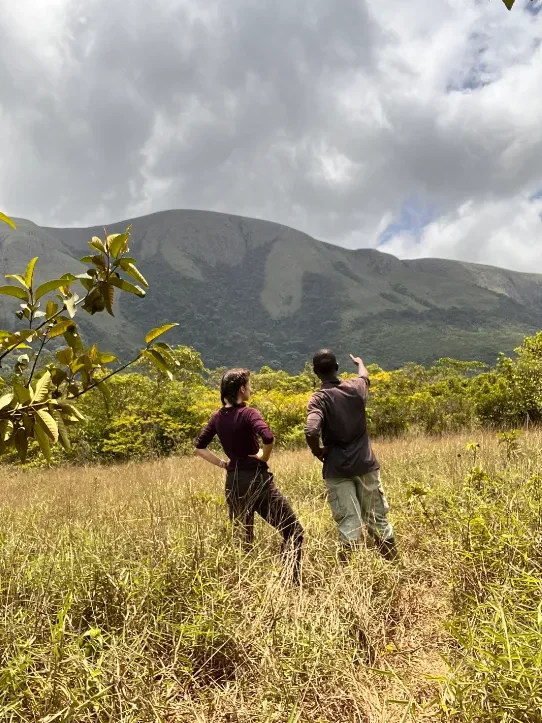
Information for Applicants
This program exclusively funds multidisciplinary research related to human origins, including dissertation research and exploratory studies.
The disciplines supported include archaeology, biological anthropology, paleoanthropology, primate behavioral ecology, genetics, geology, anatomy, morphology, paleobotany, and paleoclimatology.
Our current funding focus areas include:
- Paleoanthropology of the Miocene, Pliocene, and Pleistocene
- Primates: Evolution, behavior, morphology, ecology, endocrinology, genetics, isotope studies
- Modern hunter-gatherer groups
When to apply
- January 10 for spring cycle
- July 15 for fall cycle
- Up to $20,000 for PhD candidates
- Up to $30,000 for post-PhD researchers
Who can apply
- Your research must be relevant to human origins and evolution.
- Applications are open to advanced doctoral students or post-PhD researchers.
- PhD students must be advanced to candidacy (all but dissertation).
- There are no citizenship requirements. Applications are open to candidates from anywhere in the world.
- Applicants must be affiliated with an institution such as a university or museum. We do not give directly to individuals.
- Resubmittals are welcome and encouraged.
- If you have received a Leakey Foundation grant in the past, you must complete all reporting requirements before receiving a new one.
Eligible expenses
- The grant can only be used for expenses directly related to your research and essential to the project such as travel, living expenses during fieldwork, supplies, and research expenses.
- Aid is not offered for salary and/or fringe benefits of applicant or senior project personnel, child care, equipment, travel to meetings, institutional overhead, publication costs, or institutional support.
How to apply
- Download the instructions and materials packet.
- Read and follow all instructions.
- Submit your application online.
If you have questions about the application or the eligibility of your research after reading the instructions, please review the frequently asked questions below.
If your question is not answered there, email [email protected] .
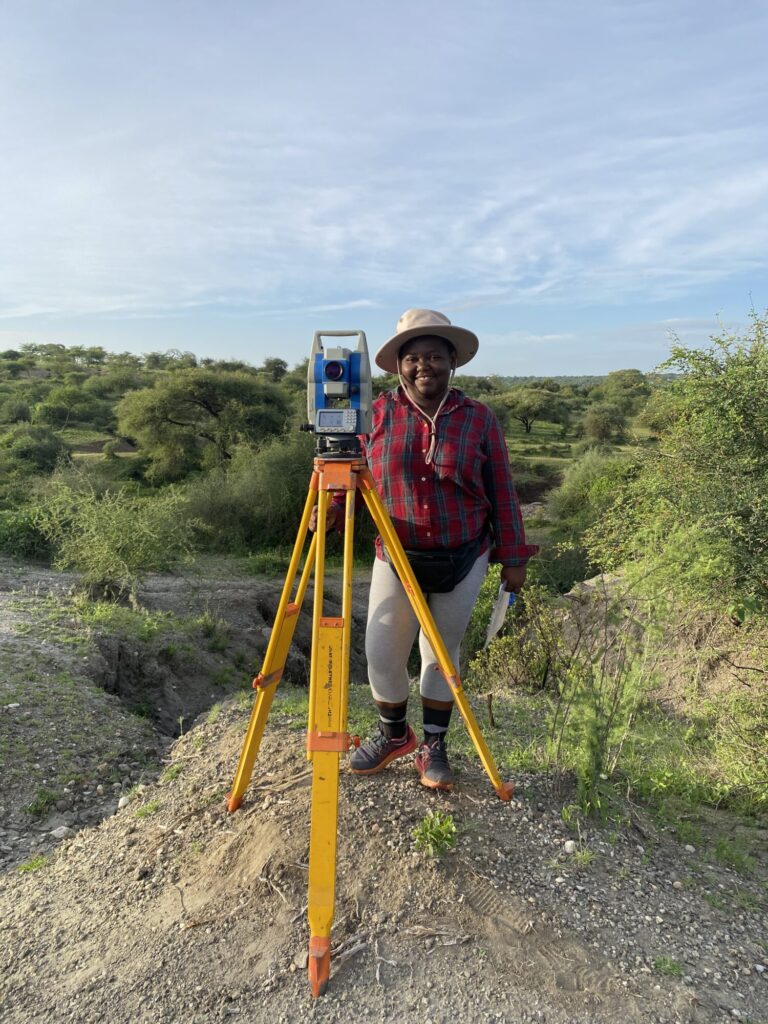
Start your application
Start your application by clicking the button that best describes you.
Frequently Asked Questions
Explore frequently asked questions about Leakey Foundation grants. Contact our Grants Department at grants at leakeyfoundation.org if your question is not answered below.
Applications
May I submit more than one proposal per granting cycle?
Investigators may only submit one proposal as a principal investigator (PI) per granting cycle. This policy does not apply to co-investigators. For example, you may be the PI on one proposal and a co-investigator on another.
What expenses can I include in my budget?
Our grants cover expenses directly related and essential to the project (i.e., travel, living expenses during fieldwork, supplies, research assistance, and other relevant expenditures). Aid is not offered for salary and/or fringe benefits of the applicant (or senior project personnel), tuition, non-project personnel, child care, equipment, travel to meetings, institutional overhead, publication costs, or institutional support.
Eligibility
Who is eligible to apply? Advanced doctoral students and people who already hold PhDs. High school and undergraduate college students are NOT eligible. There are no citizenship restrictions.
Do I need to be a US citizen to apply? No! Our grants are open to applicants from anywhere in the world.
How can I know my topic is eligible for funding? Your topic must be relevant to human origins. Our current funding priorities include:
If you are unsure, please write to us at grants at leakeyfoundation.org and provide a brief description of your project before you apply.
I won’t be a PhD Candidate until after the grant deadline. Can I still apply? The foundation’s grants officer will determine your eligibility. Please email grants at leakeyfoundation.org to explain your status.
Does The Leakey Foundation offer research grants for undergraduate or masters students? No, Leakey Foundation Research Grants are limited to applicants who either already hold a PhD or equivalent qualification in anthropology or a related discipline or are enrolled in a doctoral program with all degree requirements fulfilled other than the thesis/dissertation.
I received a previous award from The Leakey Foundation. Can I apply for another? Yes, as long as you are fully compliant with the terms of your prior award.
If I am not affiliated with a school or research institution, may I apply for a grant? Individuals must be affiliated with a school or research institution.
How much funding can I request? As of May 2022, PhD candidates may apply for up to $20,000. As of May 2022, post-doctoral applicants and senior scientists may apply for up to $30,000.
How much can my institution deduct for administrative costs? Your institution may not deduct anything. Charges for overhead, administrative or indirect costs are not allowed.
Is funding available for publishing research results? We do not currently have funding programs for dissertation writing or any other form of publication assistance.
Granting Process
What are the application deadlines and how long before I can expect a decision? Research Grants have two application cycles each year, with deadlines falling on January 10th (Spring Cycle) and July 15th (Fall Cycle). Decisions for the Spring Cycle are announced in mid-May. Decisions for the Fall Cycle are announced in mid-December.
How do you select which grants to fund? Grant proposals are generally selected for award based on but not limited to the following criteria: the scientific merit of the proposal, methods and feasibility, the budget, the qualifications of the investigators, the relevancy of the proposal to understanding human origins, the current applicant pool, and the funds available during a given year. The following is the standard process we follow for selecting grants to fund:
- Grant proposals are reviewed for completion and eligibility by The Leakey Foundation’s Grants Department.
- Proposals are then sent to The Leakey Foundation’s network of scientists with pertinent expertise for peer review.
- Next, proposals and peer reviews are evaluated by The Leakey Foundation’s Scientific Executive Committee (SEC).
- Our SEC then presents award recommendations to our Board of Trustees for approval.
- Once proposals are approved, applicants are notified, and peer review feedback is shared.
You are a nonprofit organization, does that mean donors choose which projects to fund? No. Although we depend on donations to fund our mission, decisions are made through a rigorous peer-review process. Donors and Leakey Foundation staff do not weigh in on the decisions.
How and when should I receive the decision about my proposal? You will receive a notification via the email address included with your application. We send notifications in mid-May and mid-December. If you haven’t heard by June 1st (Spring Cycle) or December 20th (Fall Cycle), please contact us at grants at leakeyfoundation.org .
What types of projects does The Leakey Foundation support? The Leakey Foundation exclusively funds research into human origins, including paleoanthropology, genetics, primate behavior, and the behavioral ecology of contemporary hunter-gatherers. Proposals that are not relevant to human origins are generally not considered.
Are there any Leakey Foundation grant programs for research that is not directly relevant to human origins? No. All applicants must explicitly demonstrate that the research is related to understanding human origins and evolution.
Explore past grant and scholarship recipients in the grantee database .
Estate Gift
I [name], of [city, state ZIP], bequeath the sum of $[ ] or [ ] percent of my estate to L.S.B. Leakey Foundation for Research Related to Man’s Origins, Behavior & Survival, (dba The Leakey Foundation), a nonprofit organization with a business address of 1003B O’Reilly Avenue, San Francisco, CA 94129 and a tax identification number 95-2536475 for its unrestricted use and purpose.
If you have questions, please contact Sharal Camisa Smith sharal at leakeyfoundation.org.
This will close in 0 seconds
How to apply for a research grant to fund your studies

If you’re planning to study for your PhD, or even a Master’s degree, you’ll likely want to apply for a research grant to help fund your studies. But how exactly do you do this?
Knowing exactly what to include in your research proposal, who to submit it to and when to apply won’t come easy for most of us, even if they are essential to studying for your postgraduate qualification.
Fear not, however, we’ve got you covered.
Decide on your research proposal
If you want to apply for a research grant, you’re first going to need a fully formed research proposal. If you are currently in education looking to go onto further study, you can ask your current professor to help you with this. If not, don’t worry too much, you can still write it yourself.
The main thing a research funder wants to understand is the purpose and impact of your research. You need to convince them your research is worth investing into and they will get high ROI.

Finalising your proposal is the first step of applying for funding. Source: Shutterstock
This means you need a clear idea of the topic you are researching, an understanding of why you’re are studying it, and an estimate of the impact your research will have on society, the industry or the academic community.
Bear in mind, your funder will want to benefit from your research, so ensure you are choosing bodies within your field and that will see the value of your proposal.
Identify relevant bodies that might fund you
After fine-tuning your proposal to something you are genuinely passionate about, you can begin finding suitable research funders to make your study abroad dreams a reality – be wary of doing this step before finalising your proposal, or you may end up studying something that can be funded but you don’t genuinely enjoy.
Unlike with most university courses, where you study is likely to be determined where you can get funding. If you are committed to studying in a particular part of the world, only bother looking for funding bodies in these areas, but the more flexible you are, the more funding you can apply to.

Google is your friend when finding suitable funders. Source: Shutterstock
Most countries have research and development funds, so these can always be lucrative funders. Corporations in the field may also have a budget for research, and universities themselves can sometimes offer funding.
It’s also worth looking if governments, universities or businesses are advertising funded research, as the projects they may be investigating could overlap with yours.
Funding bodies will have established criteria on how to go about applying for a grant. This can be found on their website, and differ from body to body. A quick google of funding agencies in the area your in should bring up these pages. It’s worth taking time to read the different application criteria to see:
- If your research fits in with their funding criteria
- Your proposal meets their application guidelines.
The longer your list, the better for potential funders and thus, the better chance you have of receiving funding.
Submit your grant proposal
Once you have identified some potential funding bodies, you can begin submitting your proposal.
This involves tailoring your research plan to fit the investor you are writing to and making your research relevant to them.
https://twitter.com/SamanthaZY/status/1027583177148125184
Time is of the essence here, and you should spend as long as you need ensuring you have adequately met all the criteria they need. This might include budget, long-term and short-term impact, a progress timeline showing a which point you will complete key milestones and any added support you may need.
Some applications may be made online, while others may be written or require a face-to-face meeting.
To ensure you can start your research in a timely fashion, you should apply at least two months before you intend to begin your studies.
You can also follow your proposal up with an email to further explain your passion for contributing to the field. This will help you to stand out against other applicants and reinforce your commitment to your studies.
Wait for the response
Once you have formulated and submitted your proposal, you must then do the hardest part of all – wait for a decision. This can be nerve-wracking, especially if you applied online without a chance to speak to the funding bodies directly.
You are likely to hear back the same way you applied – however, some investors may prefer to speak on the phone to discuss the criteria of their funding and what is expected of you.
There is no objective timeframe as to how long you may be waiting to hear back, but it can be useful to check when the application closing date is, or when you said you would be starting your studies. This can provide a benchmark as to when you will hear, so you’re not unnecessarily panicking the entire time.
If you have any questions about student finance or postgraduate education, please email us at [email protected] and we will do our best to help.
Liked this? Then you’ll love…
5 ways university research has changed the world
Funding your studies: UK student finance and beyond
Popular stories
On a budget check out these 6 uk universities with affordable tuition.

Pride Month 2024: The loudest, proudest business schools

Best movies about smart people to help you figure out your university, career, and life

Beyond South Africa: The best African countries to visit for summer break


- GRANTS & FUNDING HOME
- ABOUT GRANTS
- POLICY & COMPLIANCE
- NEWS & EVENTS
Division of Biomedical Research Workforce
- The Biomedical Research Workforce
- Reports on the Biomedical Research Workforce
- Extramural Diversity
- Undergraduate
- Graduate/Doctorate
- Postdoctoral/Residency
- Early Career
- Established Investigator
- Fellowships
- Career Development
- Other Training-Related
- Research Education
- Institute/Program Matrix
- Resources
Predoctoral Training/Clinical Doctorate

Graduate students acquire the knowledge and independence that is required to earn the research doctorate degree. Clinical students acquire the knowledge to earn the clinical doctorate degree. Most importantly, students engage in highly structured research projects under the supervision of an experienced mentor.
NIH Programs for Graduate & Clinical Students
Become an appointee on institutional awards:.
International Research Training Grant
To support research training programs for U.S. and foreign professionals and students to strengthen global health research and international research collaboration.
Research Education Program
For support to develop and/or implement a program as it relates to a category in one or more of the areas of education, information, training, technical assistance, coordination, or evaluation.
Continuing Education Training Grants
To assist professional schools to establish, expand, or improve programs of continuing professional education, or refresher education dealing with new developments in the science of technology of the profession.
Ruth L. Kirschstein Institutional National Research Service Award
To enable institutions to recruit individuals selected by the program leadership for predoctoral and/or postdoctoral research training in specified scientific areas.
Ruth L. Kirschstein NRSA Short-Term Institutional Research Training Grant
To provide individuals with research training during off-quarters or summer periods to encourage research careers and/or research in areas of national need.
Ruth L. Kirschstein Interdisciplinary Research Training Award (T90) and combined Research Education Grant (R90)
To support comprehensive interdisciplinary research training programs at the undergraduate, predoctoral and/or postdoctoral levels, by capitalizing on the infrastructure of existing multidisciplinary and interdisciplinary research programs.
You apply for Individual Awards:
Early Independence Award
To support the independent research project of exceptionally creative scientists to bypass the typical Post-Doctoral research training period in order to move rapidly to research independence.
Ruth L. Kirschstein Individual Predoctoral NRSA for MD/PhD and other Dual Degree Fellowships
Individual fellowships for predoctoral training which leads to the combined MD/PhD and other dual Clinical/Research degrees.
Ruth L. Kirschstein Predoctoral Individual National Research Service Award
To provide predoctoral individuals with supervised research training in specified health and health-related areas leading toward the research doctoral degree (e.g., PhD).
Individual Predoctoral to Postdoctoral Fellow Transition Award
To support Pre- to Post-doctoral transition of highly motivated graduate students. The F99 activity code is intended to only be used in conjunction with a K00 Award.
Dissertation Award
To support dissertation research costs of students in research doctoral programs. Dissertation awards are not renewable.
Become an appointee on your Supervisor's grant:
Research Supplements to Promote Diversity in Health-Related Research (Admin Supp)
Administrative supplements to currently active NIH research grants to enhance the diversity of the research workforce.
Stipend Levels & Info
- NIH Policies for NRSA Stipends, Compensation and Other Income
- NRSA Stipends (FY 2024)
- NRSA Stipends (FY 2023)
- Stipend/Salary FAQs
Policy Notices
- NOT-OD-24-129: Updates to NIH Institutional Training Grant Applications for Due Dates on or After January 25, 2025
- NOT-OD-24-116: Childcare Costs for Ruth L. Kirschstein National Research Service Award (NRSA) Individual Fellows and Institutional Research Training Awards
- NOT-OD-24-107: Implementation of Revisions to the NIH and AHRQ Fellowship Application and Review Process
- NOT-OD-24-084: Overview of Grant Application and Review Changes for Due Dates on or after January 25, 2025
- NOT-OD-23-111: Reminder – NIH Policies for NRSA Stipends, Compensation and Other Income
- NOT-OD-23-076: Ruth L. Kirschstein National Research Service Award (NRSA) Stipends, Tuition/Fees and Other Budgetary Levels Effective for Fiscal Year 2023
Home About DBRW Career Path Programs Institute/Program Matrix Resources FAQ HHS Vulnerability Disclosure Disclaimer Contact Us
NIH Grants and Funding National Institutes of Health U.S. Department of Health and Human Services USA.gov – Government Made Easy
Older Versions of this Page

An official website of the United States government
Here's how you know
The .gov means it’s official. Federal government websites often end in .gov or .mil. Before sharing sensitive information, make sure you’re on a federal government site.
The site is secure. The https:// ensures that you are connecting to the official website and that any information you provide is encrypted and transmitted securely.
F31: Individual Fellowships for PhD Students Award from NIA
NIA supports three F31 awards, one open to all PhD Students conducting aging research ( PA-23-272 ), one open to students from underrepresented backgrounds conducting aging research ( PA-23-271 ), and one specifically for students from underrepresented backgrounds conducting research on Alzheimer’s Disease and related dementias ( PAR-21-218 ). All F31 recipients must be U.S. citizens or permanent residents at the time of award. View other NIA fellowships available to graduate students .
Wondering if the F31 is right for you?
Explore a comparison of the three major graduate student awards available from the NIA: the F31, the F99/K00, and the R36.
F32 at a Glance
- Eligibility: Ph.D. student. Research lab chosen.
- Maximum Award Duration: Five years
- Yearly Due Dates: April 8, August 8, December 8
- Award Budget: $28,224 Stipend, $16,000 Tuition
Questions about F31 awards for aging or dementia research? Contact [email protected] .
| Number | Name | Career Stage | Discipline | Notice of Funding Opportunity |
|---|---|---|---|---|
| F31 | Individual Predoctoral Fellowship | PhD students who are at the dissertation stage by time of award | All aging research | |
| F31 - Diversity | Individual Predoctoral Fellowship to Promote Diversity in Health-Related Research | PhD students who are at the dissertation stage by time of award and are members of an . | All aging research | |
| F31 - Diversity (AD/ADRD) | NIA Predoctoral Fellowship Award to Promote Diversity in Translational Research for AD/ADRD | PhD students who are at the dissertation stage by time of award and are members of an . | Drug discovery or data science research in Alzheimer's disease and AD-related dementias. |
Important Dates
NIH NRSA fellowships are awarded in three cycles every year, as described below.
| Receipt Cycle | Application or Resubmission Due Date | Initial Review Date | Earliest Possible Award Start Date |
|---|---|---|---|
| 1 | April 8 | June/July | December |
| 2 | August 8 | October/November | April |
| 3 | December 8 | February/March | July |
Award Duration
The F31 awards supported by NIA can support up to five years of predoctoral research training for PhD students. This includes any time spent on an institutional T32 training grant. Speak to your graduate program director to determine whether you have been funded on a T32. Since the F31 (PA-23-272) and the F31 – Diversity (AD/ADRD) (PA-21-218) require students to be at the dissertation phase of their PhD, they typically only fund 2-3 years.
How to Apply
Find information on applying .
To choose a study section to indicate on your Assignment Request Form, consult the list of NIH Fellowship study sections .
NIA F31 Stipend and Funding Levels
Yearly award budgets are composed of stipends, tuition and fees, and institutional allowance, as described below. Updated information on budget levels can be found in NOT-OD-24-104 .
| Stipend | Maximum Tuition | Institutional Allowance |
|---|---|---|
| $28,244 | $16,000 | $4,750 |
Tuition and fees paid can be 60% of total institutional tuition, or $16,000, whichever is less.
Institutional Allowance may be used to cover expenses such as health insurance, research supplies, equipment, books, and travel to scientific meetings.
Childcare Costs
Additionally, each fellow may request $2,500 per year to defray childcare costs from a licensed provider. Learn more in the Frequently Asked Questions (FAQs) on Childcare Costs .
Components of an Individual Fellowship Application
Each fellowship application requires many parts; you should begin preparing your application well before the deadline. Below find the major components of an application and their length limits:
| Application Component | Length Limit |
|---|---|
| Abstract | 30 lines of text |
| Project Narrative | 3 sentences |
| Applicant Biosketch* | 5 pages |
| Sponsor Biosketch | 5 pages |
| Applicant Background and Goals for Fellowship Training | 6 pages |
| Specific Aims | 1 page |
| Research Strategy | 6 pages |
| Sponsor Statement | 6 pages |
| Description of Institutional Environment and Commitment to Training | 2 pages |
| 3-5 Reference Letters | 2 pages each |
*A Biosketch is a document containing a curriculum vitae (CV), personal statement, and description of past research experience.
Detailed instructions for each application part can be found in the SF424 (R&R) Application Guide .
Sample F31 applications are available from the National Institute of Allergy and Infectious Diseases.
Sign up for NIA training and career development updates
Last updated: June 11, 2024
nia.nih.gov
An official website of the National Institutes of Health
Post-PhD Research Grant
- Doctorates in Anthropology
- Doctorates in Related Fields
- Independent Scholars
This grant program funds individual research projects undertaken by doctorates in anthropology or a closely related field. Our goal is to support vibrant and significant work that furthers our understanding of what it means to be human. There is no preference for any methodology, research location, topic, or subfield. The Foundation particularly welcomes proposals that integrate two or more subfields and pioneer new approaches and ideas.
Award Money
The maximum Post-PhD Research Grant is $25,000. Grants are nonrenewable. There is no limit to the duration of the grant, and applicants may request funding to cover distinct research phases (for example, two summers) if this is part of the research design. Wenner-Gren awards do not include funds to cover institutional overhead or any fees related to the administration of our grants and fellowships.
Application Deadline
Application deadlines are May 1 (for project start dates between January 1 and June 30 of the following year) and November 1 (for project start dates between July 1 and December 31 of the following year). The application portal opens 2 months before the deadline. It takes us 6 months to complete the review process and arrive at a final decision.
Who Can Apply
Qualified scholars of any nationality or institutional affiliation are eligible. Independent scholars and senior scholars are welcome to apply. Individuals who are within 5 months of receiving their doctorate or equivalent degree may apply, but they must complete their degree before the start date listed on their application form.
Most grantees must fulfill all the requirements of their existing award and submit their final report before applying for a new award. But if you have a Conference and Workshop Grant, a Global Initiatives Grant, or a Historical Archives Program grant, you are welcome to apply; if so, please contact us for more information if this situation applies.
Unsuccessful applicants are welcome to reapply. But as part of their resubmission, they must explain how they have addressed the reviewers’ concerns, along with any changes to their plans.
Our reviewers assess the quality of the proposed research, its potential contribution to anthropological knowledge, and its adherence to the principles articulated in our mission, including a commitment to fostering an inclusive vision of anthropology. We expect applicants to draw inspiration from a broad range of scholarship, including relevant work in English and other languages. Please refer to “ Motion of the 32nd RBA: Diversify Information and Education about the Global Anthropologies of Foreign Researchers and Anthropology Students .”
Successful proposals have the following features:
- A well-defined research question
- A detailed description of the evidence that will be sought
- A feasible plan for gathering and analyzing this evidence
- A discussion of the applicant’s qualifications to carry out the research
- A compelling account of the project’s potential to advance anthropological knowledge and transform debates in the field.
Applicants whose research is oriented toward primatology or primate conservation must demonstrate the broader anthropological relevance of their work. The Foundation supports work on language structure and endangered languages, but only when it is grounded in anthropological concerns.
To present your project in the best possible light, please follow all instructions for completing your application. Use all the available space to describe your project. If you have questions, contact us at [email protected] or (+1) 212.683.5000.
The application asks for the following:
- General information about you and your project
- An abstract of your proposed project
- Answers to six questions about your project
- A resubmission statement if we declined a Post-PhD Research Grant application previously
- A detailed Plan A budget (Best-case scenario)
- A detailed Plan B budget (Worst-case scenario)
- A bibliography relevant to your proposed project.
The application also asks you to list the permits and permissions required for the proposed project, with the estimated dates by which you expect to secure them. However, please do not submit these documents with your application. If your application is successful, we will request copies of all relevant materials when we notify you of your award.
Applications must be in English. Applicants must submit all forms and other required materials online. If you don’t have adequate internet access to use our system, please contact us at least 1 week before the deadline and we’ll help arrange an alternative method. The online portal opens for applications 2 months before the application deadline.
Before submitting your application, please refer to the U.S. tax information on our website . Non-U.S. applicants should read the information on visa requirements for non-U.S. citizens present or coming to the U.S. as part of their project.
The Foundation requires successful applicants to comply with all U.S. laws. These include but are not limited to regulations governed by the U.S. Department of the Treasury’s Office of Foreign Assets Control (OFAC), which administers U.S. government sanctions programs and regulations relating to the Specially Designated Nationals and Blocked Persons List (SDN List). Please see the OFAC Guidelines page on our website and consult the U.S. Department of the Treasury for more information.
In compliance with OFAC regulations, the Foundation requires special documentation for projects located in Cuba, Iran, North Korea, Syria, Venezuela, Crimea (including Sevastopol), the Donetsk People’s Republic and Luhansk People’s Republic regions of Ukraine, and Russia. The Foundation does not require this documentation at the application stage, but we must receive it before we can release funds.
Please do not send any other materials beyond what the application requests. Do not send transcripts, letters of reference, manuscripts, publications, photographs, or recordings. We will not use this material in the review process, and we cannot return it to you.
The Family Center will be closed for Independence Day beginning Wednesday, July 3 at 1pm. We will reopen Monday, July 8. Contact [email protected] for inquiries.
Utility Links
- Office of the Provost

Secondary Nav Penn FRC
Primary nav penn frc.
- Resources & Support
- Event Registration
- Become a Member
Drawer Menu Penn FRC
- Back to main menu
- Medical Policy
- Advisory Board
- Family Fellows
- Backup Child Care
- Schools & Housing
- Health & Wellness
- Lactation Resources
- Grants for PhD Students with Families
- Parenting Resources
- For Expecting Parents
- PennCard and Campus Services
- Family Friendly Philadelphia
- Title IX: Know Your Rights
- Opportunities in Philadelphia
- Parental Release Consent Form
Provost Grants for PhD Students with Families
Basic page sidebar menu penn frc.
The Office of the Provost has created two grant programs for PhD students to help offset the cost of childcare and family expenses, and health insurance for dependents.
|
For information on grants for Student Health Insurance or Dental Insurance Grants, please go to |
The grants are funded by the Office of the Provost and administered by the Family Resource Center and the Office of Student Registration and Financial Services. For the academic year, the grant program will have two application cycles to support students with qualifying life events to access grant funds after the Fall grant deadline. Funding for this grant is limited and grants will be disbursed as funding allows. Students who received Fall PhD Grants should not apply for the Spring grant unless they have had a life event--new baby, marriage, change in funding/employment, or change in dependent insurance coverage.
2023-24 Academic Year and Fall 2023 Family Grant And Dependent Insurance Grant application: August 21- September 22, 2023.
Spring 2024 Application cycle: January 22-February 23, 2024 No extensions or exceptions can be made for those who miss the deadline or do not meet eligibility criteria.
*Please read the program details carefully as some changes have been made.*
- Family Grant
- Dependent Health Insurance Grant
- For information on grants to subsidize health insurance and dental insurance for PhD students, please visit the Graduate Student Center's website
The Family Grant helps to offset the cost of childcare and other expenses for PhD students with children.
Fall/Academic Year Grant Cycle:
During the Fall Grant application period , eligible PhD students may receive up to $5,000 for one child, $2,500 for each additional child, with a $10,000 maximum per family. The Fall Grant application period is intended to fund the entire academic year and those graduating in December. Students graduating in December will be eligible for partial grants.
During the Spring Grant application period, eligible PhD students may receive up to $2,500 for one child, $1,250 for each additional child with a $5,000 maximum per family. The Spring Grant application period is for those who did not qualify for Fall grants or had a qualifying life change after the Fall application deadline. If you received a Fall Grant and did not have a qualifying life change, do not apply for the Spring Grant.
Fall Application Opens: August 21- September 22, 2023
Spring 2024 Application cycle: January 22 - February 23, 2024 by 5:00 PM
Direct all questions to [email protected].
Eligibility
Eligible doctoral students must:
- Have a dependent child or children under the age of 18 or disabled living with them. In order to be considered, fall applicants must have their baby/child by December 15, 2023 and spring applicants must have their baby/child by April 21, 2024. Those expecting babies/children after the application deadline, should still apply by the deadline then submit the proof of child documentation after the baby is born or adopted. Please indicate this late document on the application.
- Be currently registered in a Penn PhD program and in good academic standing . Students on leave (except family and medical leave) during either semester are not eligible.
- Only PhD doctoral students can apply.
- Be enrolled in years 1-8. Students in year nine or beyond are not eligible.
- Students who received PhD grants during the fall term are not eligible to reapply during the spring cycle unless they had/adopted a baby after December 15, 2023 or had a qualifying life event like marriage, divorce, employment change, insurance eligibility change.
Documentation
Below are the required documentation* items that must be submitted via the online document submission form , select "PhD Grant Application" in the drop-down menu when you upload documents. Have all of your documents ready when you begin the application. If you are unable to provide a required document you must provide a written explanation of its absence.
- Copies of the 2022 U.S. tax returns for student and spouse (if filing separately).
- 2022 W2s for student and spouse/partner. (Penn W2s for 2022 can be accessed here .)
- Copies of the most recent two pay stubs for all working adults in the household. (Stipend and campus employment pay stubs can be found in Workday. )
- If applicable, proof of tuition or childcare expenses for dependents, in the form of daycare/childcare invoices, cancelled checks, and/or money transfer receipts to caregivers. Documentation is required only if a childcare related expense is listed on the application.
- your tax returns if you've claimed the child(ren) as dependents;
- a copy of the child(ren)'s birth certificate(s) or U.S. passport(s);
- copy of the Dependent I-20 or DS2019 forms;
- health insurance documents.
- Documentation of any other major costs or expenses reported in your application, as relevant.
*All documentation will be handled in accordance with the University's privacy policies.
Grant Considerations
Before you apply, you should know:
- Grants are not guaranteed. Grants are disbursed as funding allows, with priority given to the students who demonstrate the highest financial need. ( Do note, due to the economic impact of COVID-19, we are anticipating a larger pool of high-need applicants, as a result, families with higher household incomes may not receive awards as they have in previous grant cycles.)
- Fall Grant/Academic year: $5,000 for one child, $2,500 for each additional child with a $10,000 maximum per family.
- Spring Grant: $2,500 for one child, $1,250 for each additional child with a $5,000 maximum per family.
- Married and/or partnered PhD students should submit only one application.
- Grants are awarded annually, and you must reapply each year.
- Fall 2023 and 23-24 AY grant recipients will be notified by late October, with funds disbursed in November 2023. Spring 2024 grant recipients will be notified by early March and funds will be disbursed in March 2024.
- Funds will be processed through your student account. This is a separate system from Workday. You must you must set up direct deposit in in PennPay via a U.S. bank, FlyWire, or PayMyTuition or a paper check will be mailed to the permanent address listed in your Penn Profile.
- If you have an outstanding balance on your student account, the grant will be applied to your bill. Any remaining funds will be disbursed to you as a student account refund, leaving a zero balance on your student account. If you have outstanding charges in excess of the grant amount, the grant will apply to those charges and no refund will be processed.
- All University grants to individuals may be considered taxable income by the government. You are responsible for reporting the grant income and paying any applicable taxes. Depending on your tax status, taxes may be withheld prior to the grant disbursement. Such taxes may be refunded when students file annual taxes with the IRS. The SFS website provides additional information regarding withholding taxes on grants and aid for non-U.S. citizens .
- If you are receiving student loans or other forms of aid, this grant could reduce your loan amount or exceed your semester budget maximum. Students who are receiving funding up to or beyond their approved aid budget are responsible for contacting Student Financial Services to understand how receiving this grant may affect their aid package. There may be options available to you for a budget adjustment or other steps in order to receive all awarded funds, depending on your individual circumstances. Contact [email protected] or schedule an appointment with a Graduate Financial Aid Counselor to discuss your account status.
- If you do not remain in good academic standing during the period covered by the grant, some or all of the grant funds may be rescinded.
- Applicant funding status and fellowship stipend amounts will be verified with graduate groups and school finance administrators. You are responsible for notifying us if your funding status changes during the period covered by the grant. Failure to do so will result in grant funds being rescinded.
- If you provide false or misleading information or documentation in your grant application, the grant funds will be rescinded, and you will be referred to the Center for Community Standards and Accountability (CSA) for disciplinary action.
How to Apply
- Complete the online application.
- Submit required documents using this online document submission form , include the text "PhD Grant Documentation" in the message field.
Failure to provide all necessary documentation will result in delays reviewing your application or rejection of application. You may be asked to provide additional documentation or information needed to evaluate your application.
*We are committed to ensuring the security of your information. We have put in place reasonable physical, technical, and administrative safeguards designed to prevent unauthorized access to, or use of, the information collected online.
Read how Penn respects and protects your data.
This grant helps to offset the cost of dependent health insurance for PhD students with children and/or spouses.
During the Fall/academic year application cycle, eligible students may receive grant funds up to $1,000 per dependent.
During the Spring application cycle, eligible students may receive up to $500 per dependent.
Fall Application Opens: August 21- September 22, 2023
Spring 2024 Application cycle: January 22-February 23, 2024
- Have a dependent child or children under the age of 26 or disabled living with them at least part of the time and/or have a spouse. Children must be born by December 15, 2023 for Fall applications. Children must be born/adopted by April 21, 2024 for Spring applications. Those expecting babies/children after the application deadline, should still apply by the deadline then submit the proof of child documentation after the baby/child is born/adopted. Please indicate this late document on the application.
- Have purchased a qualifying health insurance policy for their dependents/spouse for the current year. The policy does not have to be PSIP, but the policy must meet the criteria listed below.
- Be currently registered in a Penn PhD program and in good academic standing during period covered by the grant cycle. Students on leave (except family and medical leave) during either semester are not eligible. Only PhD doctoral students can apply.
- $61,000 or less for household of 3 or more
- $40,000 or less for household of 2
- Students who received PhD grants during the fall term are not eligible to reapply during the spring cycle unless they had/adopted a baby after December 15, 2023, or have another qualifying life event like marriage, divorce, employment change, insurance eligibility change.
Below are the required documentation* items that must be submitted via the online document submission form . Select "PhD Grant Application" in the drop-down menu when you upload documents. Have all of your documents ready when you begin the application. If you are unable to provide a required document you must provide a written explanation of its absence.
- Copies of the 2022 (or 2022) U.S. tax returns for student and spouse (if filing separately)
- Copies of the most recent two pay stubs for all working adults in the household. (Stipend and campus employment pay stubs can be found in Workday.)
- Proof that you have personally purchased health insurance for your dependents/spouse. Document must include the amount paid for the insurance, this can be an invoice and must list the names of the family members enrolled in the plan. Dental and Vision insurance not included in this program.
- A benefits summary for the health insurance plan, unless it is PSIP. Benefit summary must outline what the insurance plan covers so we can verify it meets our insurance requirements. Dental and vision insurance plans are not included in this grant program.
*Our office is committed to ensuring the security of your information. We have put in place reasonable physical, technical, and administrative safeguards designed to prevent unauthorized access to, or use of, the information collected online.
- Grants are not guaranteed. Grants are disbursed as funding allows, with priority given to the students who demonstrate the highest financial need.
- Grants are awarded in the range of $250-$1000 for the fall cycle and $250-500 for the spring cycle. (F amilies with higher household income and assets may receive grants less than the maximum award amount.)
- If you are applying for an insurance grant for a spouse who is also a Penn PhD student, they should apply directly for the health insurance program for PhD students .
- Grants are awarded annually, and you must reapply each year.
Criteria for insurance plans for dependents/spouse:
- The insurance plan must be provided by a company licensed to do business in the United States, with a U.S. claims payment office and a U.S. telephone number. The company must have a process to remit payments to providers within the U.S. However, if you and/or your family will be living outside of the United States the insurance plan must cover your dependents in the area where you/they reside.
- The insurance plan must provide coverage for pre-existing conditions, or have been in effect long enough that any waiting period has passed.
- Your insurance plan must provide coverage for both in-patient and out-patient medical care in the area of your residence, including routine office visits, specialist office visits, diagnostic testing, imaging and physical therapy. A policy that provides only emergency or urgent medical care in this area does not meet this requirement.
You will be asked to provide a benefits summary for the insurance plan when you apply unless it is PSIP, and we will audit the plans. In addition, you will be required to sign an attestation that your plan meets these criteria. If during the audit, we find that your plan does not meet these criteria, any grant funds will be rescinded.
- Submit required documents using this online document submission form , include the text "PhD Grant Documentation" in the message field.
Grants for Students with Financial Need Penn offers a number of funding sources to support individual students with financial need. These include:
- Insurance Grants for PhD Students The University offers two grant programs for PhD students to help offset the cost of health insurance and dental insurance. These grants are funded by the Office of the Provost and administered by the Graduate Student Center and the Office of Student Registration and Financial Services.
- Trustees’ Council of Penn Women Emergency Grant The Trustees' Council of Penn Women will offer grants to students who have special financial needs. Special consideration will be given to women students. Grants will be for sudden, compelling, and unanticipated need due to changed financial circumstances. Examples include the death or unemployment of a parent or illness. These students would be unable to continue their studies without special financial assistance. Students should demonstrate resourcefulness and self-reliance in their quest for a Penn education, and their qualities should identify them as role models for other University students.
- Graduate Emergency Fund and Undergraduate Emergency & Opportunity Funding Unexpected financial circumstances can cause undergraduate, graduate, and professional students stress and impact their ability to achieve and thrive. The Division of the Vice Provost for University Life's Access and Retention Fund provides one-time Emergency Funds or Opportunity Grants to help low-income and/or first-generation undergraduate students participate in experiences they otherwise cannot afford.
- Career Services summer funding for internships Many summer internships, particularly in certain fields, provide only a small stipend or do not pay at all. Frequently the internships are located in cities with a high cost of living. This means that many students are unable to take advantage of excellent positions, which are sometimes the first step on a career in a given field. Other students wish to participate in not for profit or NGO work abroad, or to do a research project, but the travel costs to get there are prohibitive.
- Patsy Takemoto Mink Education Support Award The Patsy Takemoto Mink Education Foundation will offer five Education Support Awards of up to $5000 each to assist low-income women with children who are pursuing education or training. Awardees will be selected based on: Financial need, personal circumstance, educational path, vocational or occupational goals, and service or activist or civic goals.
Family Resource Center 3615 Locust Walk, Lower Level Philadelphia, PA 19104 215-746-2701
Footer Menu
- Site Credits
©2024 University of Pennsylvania, Philadelphia, PA 19104
/images/cornell/logo35pt_cornell_white.svg" alt="phd grant application"> Cornell University --> Graduate School
Graduate funding and enrollment, enrollment and student status.
Enrollment is the official recognition of a student’s relationship with the university. Enrolling is the basic authorization for a student’s access to campus resources including campus labs, assistantships, fellowships, travel grants, etc. each semester.
Doctoral students must be enrolled until they finish their degree unless requesting a non-student status. Further details on enrollment can be found on the Enrollment in Your Program page .
Graduate Funding
Graduate funding is a source of financial aid for enrolled doctoral students. To receive graduate funding, including assistantships, fellowships, stipends, and travel grants, a student must be enrolled for the semester in which they will receive the funds.
Ph.D. students are fully funded to pursue their degrees through a combination of competitive internal and external fellowships and research and teaching assistantships. Funding packages include tuition, health insurance/health fee, and a living allowance or stipend.
Cornell offers limited financial assistance for research master’s and professional degree programs. The terms of these awards can vary by program. For further details, please reach out to the specific program.
Funding and Non-Enrollment (M or B Exams, Graduation, Leave of Absence, or Withdrawal)
During periods of non-enrollment, such as a leave of absence, withdrawal, an individual does not retain student status; student access is deactivated, and graduate funding is ended. Without enrollment, students are ineligible to receive fellowships, assistantships, travel grants, or other forms of financial aid.
Students are not allowed to enroll or receive funding (such as assistantships, fellowships, travel grants, etc.) for any term following the date they pass their M or B exam. When a student and their committee determine the M or B exam date, it is important to notify all relevant members, including the graduate field administrator and the staff member administering the student’s appointment, so that the student may be well informed for the end day of their current appointment. Funding and enrollment are prohibited in future terms after a passed M or B exam.
Students are not allowed to enroll or receive funding for any term or period following the date of a leave of absence or withdrawal from the program.
Enrollment and Employment Limitations
All enrolled students are limited to 20 hours of combined assistantship, hourly student appointments, and/or outside employment per week. Further limitations may apply to students based on their funding source. Full employment limits can be found on the Employment policy page .
Funding and Satisfactory Academic Progress
All funding is conditional upon a student remaining in good academic standing, making satisfactory academic progress toward the degree, and performing satisfactorily in all assistantship responsibilities. Advanced doctoral students who require more than the allowed seven years to complete their degree shall not be funded as a TA after the 14 th semester. Academic progress requirements can be found on the Requirements page .

Fellowship and Grant Writing Support
The Graduate School Center for Writing and Oral Communication provides support for graduate students and postdoctoral scholars seeking funding from both external sources (grants and fellowships) and those applying for University of Maryland based fellowships and funding opportunities.
Writing Fellows receive specific training to support those applying for funding opportunities across disciplines, and Fellows have successfully applied for a wide variety of fellowships (including the NSF GRFP, the AAUW Dissertation Fellowship, and the Wylie Dissertation Fellowship) and grants from agencies including Maryland Sea Grant, US AID, and the Maryland Archaeological Conservation Laboratory.
To schedule a consultation with a Writing Fellow to discuss a funding proposal, see the directions to Request a Consultation , and be sure to provide information about your applications.
We also offer a range of workshops about applying to both internal and external funding opportunities; look for details on our Workshops page.
If students in your department or program typically apply for specific funding opportunities, we can support your students by designing a workshop tailored to applying for those opportunities. To find out more, please contact Dr. Linda Macri .
Call or Text the Maternal Mental Health Hotline
Parents: don’t struggle alone
The National Maternal Mental Health Hotline provides free, confidential mental health support. Pregnant people, moms, and new parents can call or text any time, every day.
Start a call: 1-833-TLC-MAMA (1-833-852-6262)
Text now: 1-833-TLC-MAMA (1-833-852-6262)
Use TTY: Use your preferred relay service or dial 711 , then 1-833-852-6262 .
Learn more about the Hotline
- Find Grant Funding
Children’s Hospitals Graduate Medical Education (CHGME) Payment Program
About the program, who can apply.
Back to Listing
Grants toolbox
Apply for a grant.
- Determine Eligibility
- Complete Mandatory Registrations
- Prepare Your Application
- Track Your Application
- Frequently Asked Questions
Contact HRSA 1-877-464-4772 (TTY: 877-897-9910) M - F | 8 a.m. - 8 p.m. (except holidays)
Contact grants.gov Call 800-518-4726 Email grants.gov support
Report fraud Submit a Complaint Call: 1-800-HHS TIPS (1-800-447-8477) (TTY: 1-800-377-4950)
Become a grant reviewer
- Register as a HRSA grant reviewer
- Learn about the grant review process

IMAGES
VIDEO
COMMENTS
Finding funding for graduate studies can be stressful, but scholarships and grants are available if you know where to look. University Funding: Universities often offer scholarships and research grants to PhD students. For instance, the SMU provides various funding options for doctoral students through the Moody School for Graduate and Advanced ...
The U.S. National Science Foundation offers hundreds of funding opportunities — including grants, cooperative agreements and fellowships — that support research and education across science and engineering. Learn how to apply for NSF funding by visiting the links below.
Grants and scholarships are financial aid recipients don't need to pay back. In general, grants are need-based while scholarships are based on character or merit. For graduate students, particularly PhD and doctoral candidates, scholarships are often career specific. In contrast, undergraduate scholarships are usually open-ended and merit based.
Grants & Funding. The National Institutes of Health is the largest public funder of biomedical research in the world. In fiscal year 2022, NIH invested most of its $45 billion appropriations in research seeking to enhance life, and to reduce illness and disability. NIH-funded research has led to breakthroughs and new treatments helping people ...
Graduate students can apply for this traineeship through their institutions, if available. These topics can range across the scientific spectrum. Current projects can be found by state. Research Experiences for Graduate Students Supplemental Funding These awards provide additional funding for graduate students with mentors who have an active ...
Sustainable Agriculture Research and Education Program: Graduate Student Grant Program. Award: Up to $15,000. Deadline: Varies. This grant is provided for master's and doctoral students who want to do research related to sustainable agriculture issues for their degree program.
The application process for PhD funding calls is the same as the process for SRG funding calls and uses the same proposal and budget templates. ... Grant Contracts. SRGs and PhD RGs are designed to be contracted directly with individual researchers. The individual researcher is responsible for receiving, spending, and reporting on funds. ...
Dean's Emergency Fund. The Dean's Emergency Fund enables terminal master's and PhD students in the Graduate School of Arts and Sciences to continue making academic progress despite unanticipated, extreme financial hardships that cannot be resolved through fellowships, loans, or personal resources. The maximum award for eligible requests is ...
Harvard guarantees full financial support to PhD students—including tuition, health fees, and basic living expenses—for a minimum of five years. ... Apply. Applying to Degree Programs; Applying to the Visiting Students Program; Admissions Policies; ... grant toward tuition and fees—paid in full for years 1 through 4, plus the dissertation ...
Tip 3 - Be really organised. Some of the most boring and obvious advice for a PhD funding search also happens to be some of the most effective. First of all, make a list of the different funding options you might apply for. Include details of the amounts they offer, their specific eligibility criteria and, most importantly, their deadlines.
The 25 Best Places to Find PhD Fellowships. Each year, PhD students apply for and earn thousands of fellowships to fund research projects, dissertations, and other doctoral-level studies in their chosen fields. ... Preparing a Successful Fellowship or Grant Application, Ernesto Chávez, Miroslava Chávez-García and Luis Alvarez, ...
Applicants. Individuals can access the application module here. The National Science Foundation (NSF) Graduate Research Fellowship Program (GRFP) recognizes and supports outstanding graduate students who are pursuing research-based master's and doctoral degrees in science, technology, engineering, and mathematics (STEM) and STEM education fields within NSF's mission.
Apply for AAUW's Fellowships and Grants Today! Follow in the footsteps of award-winning authors, scientists, scholars, changemakers, and community leaders. AAUW is providing more than $6 million in funding to 285 fellows and grantees in the 2023-24 award year. These exceptional recipients will pursue academic work and lead innovative ...
The average yearly tuition for a PhD program is slightly above $16,000, which means students will invest about $80,000 in tuition fees alone for a five-year program. ... students may need to travel for conferences and research. Without funding from a graduate student association or grant program, the student will have to cover these costs ...
Amount: $8,000-$50,000. Deadline of Application: November 30, 2024. The Summer/Short-Term Research Publication Grant is the oldest female-specific scholarship program for graduate students. Of course, only female graduate students are considered, and they must either be U.S. citizens or permanent residents.
The majority of The Leakey Foundation's Research Grants awarded to doctoral students are in the $3,000-$15,000 range with a funding limit of $20,000. Larger grants given to senior scientists and post-doctoral researchers may be funded up to $30,000. As of May 2022, the funding limits have increased to $20,000 for PhD candidates and $30,000 ...
Decide on your research proposal. If you want to apply for a research grant, you're first going to need a fully formed research proposal. If you are currently in education looking to go onto further study, you can ask your current professor to help you with this. If not, don't worry too much, you can still write it yourself.
NIH Programs for Graduate & Clinical Students. Become an appointee on Institutional Awards: D43. International Research Training Grant. ... NOT-OD-24-084: Overview of Grant Application and Review Changes for Due Dates on or after January 25, 2025; NOT-OD-23-111: Reminder - NIH Policies for NRSA Stipends, Compensation and Other Income ...
This includes any time spent on an institutional T32 training grant. Speak to your graduate program director to determine whether you have been funded on a T32. Since the F31 (PA-23-272) and the F31 - Diversity (AD/ADRD) (PA-21-218) require students to be at the dissertation phase of their PhD, they typically only fund 2-3 years. How to Apply
The maximum Post-PhD Research Grant is $25,000. Grants are nonrenewable. There is no limit to the duration of the grant, and applicants may request funding to cover distinct research phases (for example, two summers) if this is part of the research design. Wenner-Gren awards do not include funds to cover institutional overhead or any fees ...
The Family Grant helps to offset the cost of childcare and other expenses for PhD students with children.. Fall/Academic Year Grant Cycle: During the Fall Grant application period, eligible PhD students may receive up to $5,000 for one child, $2,500 for each additional child, with a $10,000 maximum per family.The Fall Grant application period is intended to fund the entire academic year and ...
Fellowships for graduate students generally relate to a short-term opportunity to study or conduct research in a specific field. Awarded for academic excellence, they can include an internship or other service commitment and can pay for living expenses, or offer a stipend. Fellowship opportunities can be found in most graduate fields.
Applicants must be currently enrolled in a PhD programme to be eligible for this call and will require a letter of support from their PhD supervisor sent no later than two weeks after the deadline to the STEG Team at [email protected]. PhD Research Grants of up to £15,000 can fund research assistance, data collection and/or purchase, and stipends.
Further details on enrollment can be found on the Enrollment in Your Program page. Graduate Funding. Graduate funding is a source of financial aid for enrolled doctoral students. To receive graduate funding, including assistantships, fellowships, stipends, and travel grants, a student must be enrolled for the semester in which they will receive ...
The Graduate School Center for Writing and Oral Communication provides support for graduate students and postdoctoral scholars seeking funding from both external sources (grants and fellowships) and those applying for University of Maryland based fellowships and funding opportunities. ,
Graduate researchers enrolled as of 1 January 2015 will participate in one of the following three PhD programs, as determined by their Faculty or program of enrolment: 1. Professional Development mode. Students are required to complete a minimum of 120 hours of professional development activities. 2. Coursework
Students meeting the NYS Dream Act eligibility criteria can apply for one or more HESC-administered grant and scholarship programs and be directed to the NYS DREAM Act application powered by International Scholarship & Tuition Services (ISTS).. The application is simple and straightforward, and the information provided will be used ONLY to determine eligibility for and administer awards.
Second Chance Grant Program. Providing up to $3 million in financial assistance in the form of $3,000 grants to eligible students re-enrolling at a qualifying institution. Dolly Parton's Imagination Library of Ohio. Any child in Ohio between birth and age five years old can receive one free book each month.
The purpose of the Children's Hospitals Graduate Medical Education (CHGME) Payment Program is to compensate for the disparity in the level of federal graduate medical education (GME) funding for freestanding children's teaching hospitals versus other types of teaching hospitals.
Former President Donald Trump proposed "automatically" giving green cards to foreign nationals who graduate from a US college - comments that break from his efforts to curb both legal and ...